

Pursuing A Part-Time Phd In Computer Science: What You Need To Know
Earning a PhD is the pinnacle of academic achievement in computer science, opening doors to research, teaching, and leadership roles. But taking 4+ years off work for a full-time program isn’t feasible for everyone.
Part-time PhD options allow professionals to attain this goal while continuing their careers.
If you’re short on time, here’s the key takeaway: Part-time CS PhD programs typically take 5-7 years to complete . They provide flexibility for working students but require diligence to balance school, research, and professional demands.
The Benefits of a Part-Time CS PhD
Progress academically without leaving your job.
A part-time PhD in Computer Science offers the unique opportunity to advance your academic career while still maintaining your professional commitments. This flexibility allows you to continue working in your current job, providing financial stability and practical application of your studies.
Balancing work and study can be challenging, but the rewards are worth it. By pursuing a part-time PhD, you can deepen your knowledge in your chosen field and make significant contributions to the advancement of computer science.
Network with faculty and peers in your field
One of the key advantages of pursuing a part-time PhD in Computer Science is the opportunity to network with esteemed faculty members and like-minded peers who share your passion for the subject. Interacting with experts in the field can provide valuable insights, guidance, and collaboration opportunities.
Attending conferences, workshops, and seminars can further expand your network and expose you to the latest developments in computer science. Building these connections can open doors to new opportunities and enhance your career prospects.
Strengthen research skills and resume
A part-time PhD program allows you to develop and refine your research skills, which are highly valued in the field of computer science. Through conducting in-depth research, analyzing data, and writing scholarly papers, you can enhance your ability to critically think, problem solve, and contribute to the body of knowledge in your area of expertise.
Moreover, having a PhD in Computer Science on your resume demonstrates your dedication, perseverance, and expertise, making you a highly sought-after candidate for both academic and industry positions.
Program Structure and Requirements
Reduced course load each semester.
Pursuing a part-time PhD in Computer Science offers flexibility in terms of course load. Unlike full-time students, part-time students typically take a reduced number of courses each semester. This allows them to balance their academic commitments with other personal and professional responsibilities.
By taking fewer courses at a time, part-time students can focus on their coursework more effectively and ensure a better understanding of the material.
Original dissertation research
The cornerstone of a part-time PhD program in Computer Science is the dissertation research. Students are required to embark on an original research project under the guidance of a faculty advisor. This research should contribute to the existing body of knowledge in the field and demonstrate a deep understanding of a specific area of computer science.
The research can involve developing new algorithms, designing innovative software systems, or exploring cutting-edge technologies.
Qualifying exams and proposal defense
Part-time PhD students in Computer Science are typically required to pass qualifying exams to demonstrate their readiness for conducting research. These exams assess the student’s knowledge and understanding of the core concepts in the field.
Once the exams are passed, students need to prepare a research proposal outlining the objectives, methodology, and expected contributions of their dissertation. The proposal is then defended in front of a committee of faculty members who evaluate its feasibility and significance.
It’s important to note that the specific structure and requirements of a part-time PhD program in Computer Science may vary depending on the institution. It is advisable to consult the program’s official website or contact the program coordinator for more detailed information.
Finding the Right Program
When pursuing a part-time PhD in Computer Science, finding the right program is crucial for success. Here are some key factors to consider:
On-campus and online options
One of the first decisions to make is whether to pursue your PhD on-campus or online. On-campus programs offer the benefit of face-to-face interactions with professors and fellow students, while online programs provide flexibility for those who are working or have other commitments.
It’s important to weigh the pros and cons of each option and choose the one that aligns best with your lifestyle and goals.
Focus on faculty research expertise
Another important factor to consider when choosing a program is the faculty’s research expertise. Look for programs where the faculty members have research interests and expertise that align with your own.
This will ensure that you receive guidance and mentorship from experts in your field of interest. Additionally, professors with strong research backgrounds can provide valuable networking opportunities and connections in the industry.
Funding availability
Funding is a significant consideration for many part-time PhD students. Look for programs that offer funding options such as scholarships, grants, or assistantships. These can help alleviate the financial burden and allow you to focus on your studies.
It’s also worth exploring external funding opportunities from organizations or government agencies that support research in your field.
Managing Your Time Effectively
Stay organized with schedules and goals.
When pursuing a part-time PhD in computer science, time management becomes crucial. It is important to create a schedule that includes dedicated study hours, research time, and coursework completion. By setting goals for each week or month, you can track your progress and ensure that you are staying on track.
One effective strategy is to use a planner or a digital calendar to keep track of deadlines, meetings, and other important events. By having a visual representation of your commitments, you can prioritize your tasks and allocate time accordingly.
Additionally, breaking down larger tasks into smaller, manageable chunks can help you stay organized and prevent overwhelm. By setting realistic goals for each study session, you can make progress towards your PhD while still managing other responsibilities.
Communicate needs clearly at work
When pursuing a part-time PhD, it is essential to communicate your needs with your employer or colleagues. Letting them know about your academic commitments and the time required for your studies can help them understand your availability and make necessary adjustments.
Consider having a conversation with your supervisor or manager to discuss your situation and explore potential flexible working arrangements. This could include adjusting your work schedule, reducing your workload, or even exploring opportunities for research collaboration between your job and your PhD.
Open and honest communication can go a long way in ensuring that both your work and academic responsibilities are managed effectively.
Leverage support systems
Pursuing a part-time PhD can be challenging, but you don’t have to do it alone. It is crucial to leverage the support systems available to you.
Reach out to your academic advisor or supervisor for guidance and support. They can provide valuable insights on managing your time, selecting courses, and balancing your academic and work commitments.
Additionally, consider joining or forming study groups with fellow part-time PhD students. Collaborating with others who are facing similar challenges can provide a sense of camaraderie and support. You can share study materials, discuss research ideas, and offer each other encouragement along the way.
Lastly, don’t forget about the support of your family and friends. Let them know about your academic journey and the challenges you may face. Their understanding and encouragement can help you stay motivated and focused on your goals.
Remember, pursuing a part-time PhD in computer science requires dedication, discipline, and effective time management. By staying organized, communicating your needs, and leveraging support systems, you can successfully navigate this exciting academic journey while maintaining a balance with your work and personal life.
Completion, Careers and Next Steps
Job prospects post-phd.
Completing a part-time PhD in computer science opens up a world of exciting job prospects. With a doctoral degree in this field, you are well-equipped to pursue highly specialized positions in both industry and academia.
The demand for computer science professionals continues to grow, and obtaining a PhD can give you a competitive edge in the job market. According to the Bureau of Labor Statistics, the employment of computer and information research scientists is projected to grow 15 percent from 2019 to 2029, much faster than the average for all occupations.
This means that there will be ample opportunities for individuals with advanced degrees in computer science.
Potential teaching and research roles
One of the key benefits of earning a PhD in computer science is the opportunity to pursue teaching and research roles. Many universities and research institutions are constantly seeking experts in the field to join their faculty and contribute to cutting-edge research.
As a PhD holder, you can become a professor, teaching and mentoring the next generation of computer scientists. Additionally, you can engage in research projects, pushing the boundaries of knowledge in the field and making significant contributions to the advancement of technology.
The opportunity to share your expertise and make a lasting impact in the academic community is truly rewarding.
Higher salaries and senior positions
Earning a PhD in computer science can also lead to higher salaries and senior positions. With the advanced knowledge and skills gained during your doctoral studies, you become a valuable asset to companies and organizations.
Employers often recognize the expertise and dedication required to complete a PhD, and are willing to offer higher salaries to attract and retain top talent. In addition, holding a doctoral degree can open doors to senior management and leadership positions, where you can have a greater influence on strategic decisions and shape the direction of the company.
According to a survey conducted by the National Association of Colleges and Employers, computer science PhD graduates earned an average starting salary of $123,000 in 2020, significantly higher than those with a bachelor’s or master’s degree.
While requiring diligence and time management skills, part-time computer science PhD programs make this high-level credential attainable for busy professionals. From strengthening your research abilities to opening new career doors, the long-term benefits of earning a PhD on a flexible schedule are immense.
If you’re willing to balance work, research, and coursework, a part-time CS PhD can help you achieve your pinnacle academic and career aspirations.
Similar Posts

Northeastern’S Computer Science And Business Program: A Complete Overview
For students interested in both technology and business, Northeastern University’s combined computer science and business program provides the perfect interdisciplinary foundation. Integrating a strong computer science curriculum with business education gives students a powerful skillset for tech-driven business roles. If you’re short on time, here’s a quick answer to your question: Northeastern’s 5 year BS/MS…

Is Political Science An Easy Major? Examining The Academic Rigor
Political science involves studying governments, political processes, systems, and behaviors. With politics being ubiquitous in society, some assume political science must be easy to study. But is political science truly an easy major? Let’s closely examine the academic rigor and workload involved. If you’re short on time, here’s a quick answer: No, political science is…

Is Information Science A Good Major? Evaluating The Pros And Cons
Information science is an interdisciplinary field focused on understanding the role of information in society. If you’re considering this major, you likely want to weigh the benefits and drawbacks. Information science offers intellectual rewards and diverse career paths, but requires dedication to handle the technical curriculum. If you’re short on time, here’s a quick answer:…

The Top Computer Science Schools In Ohio
Ohio is home to some of the best computer science programs in the nation. If you’re considering studying computer science in Ohio, you’ll have several excellent options to choose from. In this comprehensive guide, we’ll outline the top computer science schools in Ohio based on program strength, reputation, affordability, and other key factors. If you’re…

Introduction To The University Of Electronic Science And Technology Of China
The University of Electronic Science and Technology of China (UESTC) is a highly regarded university known for its engineering and technology programs. If you’re short on time, UESTC is located in Chengdu, ranks among China’s top 10 universities, and is a member of China’s C9 League. In this comprehensive guide, we will provide an in-depth…

Science Terms Starting With J – An In-Depth Glossary
The language of science is full of complex terms that can be difficult to grasp, especially those that start with less common letters like J. But learning key science vocabulary is crucial for excelling in STEM classes and careers. If you’re short on time, here’s a quick answer: Some important science terms starting with J…
A comprehensive guide to part-time PhDs
Doing a PhD part-time can be an attractive option for many reasons. However, part-time PhDs are less common than full-time ones, and there tends to be a lack of information on this option. This guide to part-time PhDs answers the most common questions that prospective part-time PhD candidates have.
The difference between a part-time and a full-time PhD
How much work is a part-time phd, how long does it take to do a phd part-time, where is it possible to do a phd part-time, benefits of a part-time phd, disadvantages of a part-time phds, is it worth doing a part-time phd, skills necessary for completing a phd part-time, conditions for success in a part-time phd, online part-time phd programmes, ten questions to ask yourself before embarking on a part-time phd.
The main difference between a part-time and a full-time PhD is typically the amount of time that a student spends per week on PhD-related tasks. The typical length of a full-time work week is five 8-hour days, comprising 40 hours in total. In some countries, this includes breaks. Thus, 38-40 hours/week can generally be considered full-time employment.
A part-time PhD carries fewer hours per week than full-time employment.
Precise definitions of part-time work differ. While some consider part-time employment as anything less than 38 hours/week, the OECD for instance defines part-time workers as those who work less than 30 hours/week.
Some universities have minimum requirements for part-time PhDs, for example, a minimum of 20 hours/week. Others, however, are more flexible. They allow part-time PhD candidates to spend anything between a few hours to several days per week on their part-time PhD studies.
Coursework that is required in PhD programmes is generally adjusted to part-time candidates and stretched over a longer period. The same is true for certain deadlines and comprehensive exams if required.
The degree that is awarded upon successful completion of a part-time PhD is the same as those being awarded for completing full-time programmes.
Most degree certificates don’t even mention that a PhD was pursued on a part-time basis. There is no reason to worry that a part-time PhD degree may be perceived as worth less than a full-time one.
A part-time PhD requires pretty much the same amount of work as a full-time PhD. Part-time PhD programmes are spread out over a longer period, but the requirements in terms of credits and output ( a monograph or cumulative dissertation ) are usually the same.
Part-time PhD candidates are often highly aware of their time limitations. In turn, they may be better at utilizing their limited time during the week. For instance by minimizing procrastination, prioritizing tasks and making strategic decisions. However, this is difficult to generalise.
Part-time PhD students may be more inclined to work during evenings and weekends.
Other responsibilities during the ‘normal’ working hours result in less attention to PhD-related work. And sometimes, PhD work requires several hours of uninterrupted deep work.
In some cases, the lack of opportunities to focus on the PhD for a longer period can increase frustrations and stress levels. This is particularly true when part-time PhD students start together with a cohort of full-time PhD students and compare their progress with that of their full-time peers.
Ultimately, how much work a part-time PhD requires depends very much on a student’s research project, personality, efficiency, subjective perception of workload and stress, supervision, luck with experiments, and so on. This does not differ from a full-time PhD.
In most cases, a part-time PhD takes longer than a full-time PhD. A general rule of thumb is that the fewer hours someone spends on a PhD per week, the longer it takes to complete it.
The number of years that full-time PhD students take to complete a PhD varies. Some finish in three years. Others require four, five or more years. Thus, there is a huge variation in the time it takes to finish a PhD. The same is true for part-time PhDs.
There are also differences between universities. Some universities have a strict programme that takes, for instance, three years for full-time PhD students and six years for part-time PhD students.
Other universities adapt to the specific circumstances of individual PhD candidates. They may allow someone to finish a part-time PhD in three years as long as all requirements are met. But they may also be okay with a part-time candidate who spends a decade on his or her PhD studies.
Can you complete a part-time PhD programme? Yes, absolutely.
But due to the vast differences between universities as well as PhD programmes, it is essential to inform yourself properly before applying for a part-time PhD.
The regulations in terms of length of a part-time PhD have a major effect on a PhD trajectory, time planning, tuition fees if applicable, etcetera.
There are plenty of opportunities to do a PhD part-time, but the specific opportunities and arrangements depend very much on individual universities.
Some universities advertise specific part-time PhD programmes on their web pages. Or, with a little bit of digging, provide information online for those who are interested in part-time PhDs.
For other universities, it is difficult to find any information on part-time PhD programmes online. This does not always mean that there are no opportunities. Sometimes, it requires sending emails to the admissions office, or contacting a potential PhD supervisor directly to ask for part-time possibilities.
There are also differences in national contexts. In some countries, for instance, in Germany, part-time PhD studies are often the norm. In Germany, many paid positions exist that encompass 60% of a full-time equivalent: time during which a PhD student is required to work in a lab or assist a professor. In the remaining 40% of the time, which is unpaid, a PhD student is expected to work on a dissertation.
In some other countries, PhD students tend to be employed in the public sector, receive a salary and make pension contributions. In those cases, they tend to fall under the same regulations as the non-academic workforce. This can mean, for instance, that they have the right to change their contract to part-time, for instance in the case of care responsibilities.
There are many benefits to doing a PhD part-time. Some of the most common advantages are
- More secure finances: Many full-time PhD students experience financial insecurities because PhD scholarships are often not enough to cover living expenses, or do not cover the whole PhD trajectory. Part-time PhD students often work next to their PhD studies which provide additional income and a layer of financial security.
- Improved employability: This includes industry employability and employability in academia. Industry employability is enhanced if someone already gains substantial work experience outside academia, through working in a certain profession while doing a part-time PhD. Employability in academia is enhanced if someone already gains academic work experience (for example as a research assistant) and teaching experience (for example as a junior lecturer or teaching assistant) while doing a part-time PhD.
- Flexibility: Doing a PhD part-time tends to provide increased flexibility. For instance, students who have care responsibilities are more likely to be able to combine their PhD studies with their other responsibilities on a part-time basis.
- Efficiency: The advantage of many part-time PhDs is that they are very aware of their time limitations and force themselves to be strategic in their choices. Part-time PhD students also often benefit from existing work experience and tend to be a bit older than full-time students. Combined, they sometimes are more confident and struggle less with imposter syndrome. Since procrastination is essentially linked to a fear of failure, part-time PhD students on average may be more confident, suffer less from procrastination and are therefore able to work more efficiently.
There are also disadvantages and challenges in part-time PhDs. Some of the most common disadvantages of doing a PhD part-time are:
- Difficulty to maintain a work-life balance: ‘Getting it all done’ is always challenging. Adding a part-time PhD to existing tasks, activities and responsibilities can negatively affect a person’s work-life balance. Part-time PhDs frequently require multi-tasking, which can interrupt the flow of work and lead to mistakes. Furthermore, evenings, weekends and holidays may be the only times when uninterrupted PhD work for several hours or days is possible. When part-time PhD students are not very good with boundary setting, they can easily feel overwhelmed and as if they can never take a break.
- Tuition fees: While not all PhD students (regardless of whether full-time or part-time) have to pay tuition fees, many do. Tuition fees tend to be adjusted in part-time programmes. Nonetheless, paying tuition fees for several years can be a financial burden. In addition, part-time PhD students are not always eligible for all scholarships and funding opportunities.
- Less supervision: Part-time PhD students often work even more independently than their full-time counterparts. Of course, the amount of supervision differs for full-time PhD students as well. However, a simple reason for less supervision is simply that part-time PhD students are not always physically present in a lab or department. They have less spontaneous interactions with their supervisors and other professors. It reduces the opportunities to ask a quick question or get feedback on a small issue. Part-time PhD students may be more reliant on more formal, scheduled meetings every few weeks or months.
- Feelings of isolation: Part-time PhD students may feel disconnected and isolated due to a lot of independent work, less physical presence and opportunities to connect with colleagues and peers. Furthermore, part-time PhDs tend to be in the minority, as full-time PhDs are still more common. This means that part-time PhDs may feel misunderstood and have no one to share their unique experiences and challenges with.
Following your curiosities and researching a topic in-depth can be a wonderful thing.
Yet, the question of whether a PhD part-time is worth doing or not is difficult to answer. It depends on the unique situation and ambition of each person in question.
Some people embark on a PhD part-time to progress in their career. Some people hope for a financial reward after completing a PhD part-time. Some people intend to change careers and use a part-time PhD to start the process while still earning money in a different job. Some people look for a challenge and embark on a part-time PhD for self-fulfilment. Some people have no other option but to do a PhD part-time.
Every person has to decide for him- or herself whether it is worth it, sensible and feasible. The decision requires a lot of self-reflection, and financial and life planning.
The decision to do a part-time PhD should not be treated lightly.
Completing a PhD part-time requires several skills. These skills can be learnt. However, a complete lack of these skills at the start of a part-time PhD will make the trajectory much more challenging.
First of all, part-time PhDs benefit from a high degree of self-discipline.
Those who struggle to motivate themselves and to get the smallest task done without any external pressure, might not be the best candidates for part-time PhDs. Part-time PhD work requires a lot of self-discipline as well as self-motivation.
Next, the ability to multi-task and keep a cool head in stressful situations is a big advantage for those who embark on a part-time PhD.
Stressing out easily and feeling easily overwhelmed with many tasks and deadlines, on the other hand, is counterproductive in a part-time PhD.
Furthermore, flexibility and the ability to adapt to different circumstances is pivotal.
Part-time PhD students tend to wear many different hats. They need to be able to switch between different roles and juggle lots of different tasks and responsibilities.
Additionally, not everything will work according to plan. Part-time PhD students have to accept that things do not always work out as expected and have to quickly adapt to new situations.
Lastly, the ability to work independently can make or break a part-time PhD trajectory. Working on a PhD part-time often means working from home, alone, without social interaction and constant feedback opportunities. Not everyone is cut out for this type of work.
A fundamental condition for success in a part-time PhD is the selection of a fitting research topic.
As in any PhD, regardless of whether full- or part-time, a PhD student spends many waking hours on the topic. If the topic is not interesting to the PhD student, and he or she is not passionate about it, motivation to work on it will inevitably decrease over time.
At the same time, the most passionate and skilled PhD student may still struggle if the institutional environment and supervision are suboptimal.
A supportive institutional environment that assists, accommodates, and invests in part-time PhD students can make a world of difference.
Probably even more important than the institutional environment is a good relationship between the part-time PhD student and PhD supervisors.
The quality and quantity of supervision matters, but also the social compatibility between students and supervisor/s. Therefore, applying to a programme without having ever met the prospective supervisor in person is a risky business.
If a prospective PhD student intends to continue working part-time in a different job, all parties should be informed and agree with the arrangements. If there is a connection between the PhD topic and the job, some employers even enter a formal arrangement that allows the student to do PhD work during some ‘normal’ working hours.
Pulling off a part-time PhD without all parties approving, or even knowing about it, can create a lot of problems along the way.
Lastly, a certain degree of financial security is required. Of course, this depends on the unique financial arrangements made by a part-time PhD. However, if other work, scholarships or grants are not enough to cover living expenses during a part-time PhD, it is not advisable to embark on this journey.
While online, part-time PhD programmes were available before the Covid19 pandemic, they have become much more common in the last two years. There are some strong opinions when it comes to online, part-time PhD programmes.
Proponents of these online programmes highlight how they can help to create a more level playing field . It allows PhD candidates, for instance, to live in a low-cost living area, while following a PhD at a prestigious university in a high-cost of living area.
Opponents lament the decreasing quality of PhD supervision in online PhD programmes. Some argue that doing a PhD increasingly becomes increasingly financialised, with universities collecting tuition fees but not providing adequate support.
However, with everything, this is very difficult to generalise . It requires prospective PhD students who are interested in these programmes to inform themselves thoroughly and to decide on a personal basis whether an online programme is a good fit or not. Speaking with others who already do, or finished, online part-time PhD programmes might be particularly useful.
If you consider embarking on a part-time PhD, your decision can be supported by asking (yourself) the following questions:
- What is my motivation to do a part-time PhD?
- Am I passionate enough about my (potential) research topic to spend several years working on it?
- What are the potential advantages and disadvantages of doing a part-time PhD, and how can I mitigate the disadvantages?
- Do I have enough self-discipline and endurance to do a part-time PhD with limited supervision?
- Do I have the flexibility to incorporate potential coursework into my day-to-day agenda?
- How many hours/week do I want to spend on my PhD, and how many hours can I (afford to) spend on it?
- What are the part-time PhD regulations of the university/universities where I consider applying?
- Is the (potential) PhD supervisor a good fit, and does the institutional environment seem supportive of part-time PhD students?
- How can I finance the part-time PhD?
- What do I want to do after completing the PhD?
Get new content delivered directly to your inbox!
Subscribe and receive Master Academia's quarterly newsletter.
Public speaking in academia and how to practice it
Strong academic networks through shared activities, related articles.
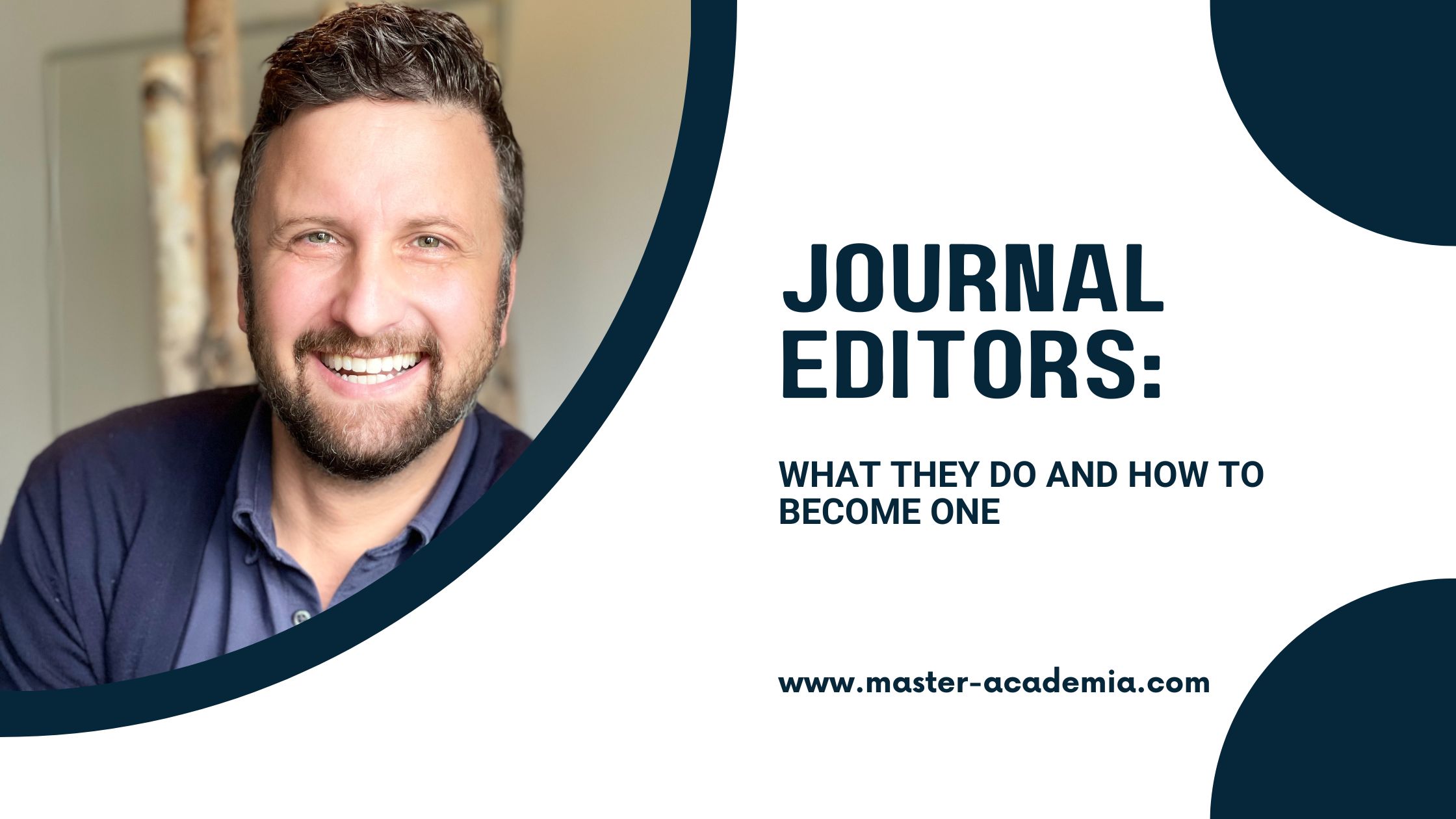
Journal editors: What they do, and how to become one
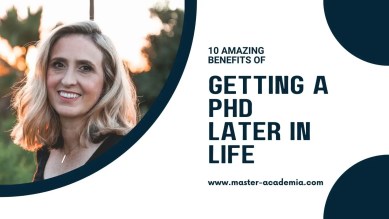
10 amazing benefits of getting a PhD later in life

The best answers to “Why do you want to do a PhD?”
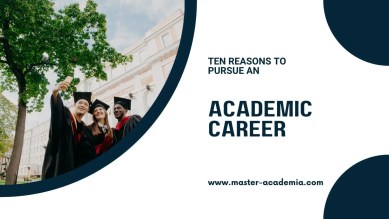
Ten reasons to pursue an academic career

- Part Time PhDs – Everything You Need To Know
- Types of Doctorates
Introduction
Whilst the core activities of a part time PhD are identical of that to a full time PhD, its arrangement is different. This difference is not only in programme duration but also in fees and funding opportunities. In addition to this, part time study also has different benefits and challenges. Therefore, whilst your personal situation may not be ideal for a full time PhD, it could be perfect for a part time one. We’ve outlined these differences as well as the pros and cons of part time study to help you decide whether it’s right for you.
Why Do a Part Time PhD?
Undertaking a part time PhD can be a great option for you if you fall into one of the four categories:
- Financial – a part time PhD provides the opportunity to earn whilst you study. Although you could secure a full time studentship, the stipend it offers may not be enough in all cases, for example, if you’re financially responsible for multiple family members.
- Career – working individuals, especially those who have already advanced several stages in their career, may opt for a Professional Doctorate. A Professional Doctorate is equivalent to a part time PhD, but focuses on a specific professional practice relevant to the individual. It’s usually undertaken when you wish to apply research skills in a professional environment or become more specialised in your industry.
- Caring obligations – part time study offers a greater deal of flexibility compared to its full time equivalent. This can be desirable in situations where the individual has considerable caring obligations, such as a young family.
- Intensity – many students feel that a pursuing a research degree over a longer period of time drastically lowers the intensity of postgraduate study. Part time PhD hours per week are typically around half that of its full time equivalent. This can come with a wide range of physical and mental health benefits.
Part Time PhD Fees
The average tuition fee for part time PhD study in the UK is approximately £2,356 per academic year for home students, and between £8,000 to £12,500 for international students.
This is typically 50% of the fee charged for an equivalent full time doctorate. However, a handful of universities use a prorated fee of up to 60% so it’s important to check the individual fees for each university you are applying to. These additional costs usually cover the admin/overhead fees associated with your time at the university.
Besides the tuition fee, there are several other costs which you need to account for. You can learn about these costs in our full cost breakdown of UK PhDs .
Part Time PhD Funding and Scholarships
As a part time student, most universities will expect you to fund your own studies. This is because nearly all part-time students will work a paying job alongside their studies which can be used to support their education.
However, you may still apply to department or university funding opportunities such as subject-specific bursaries. Besides this, external bodies such as Research Councils , research charities and industrial institutions also offer grants and PhD studentships for research projects related to their field. It’s worth remembering these opportunities are usually very limited and are awarded based on a candidates strength and not their personal situation.
One benefit of selecting a research project related to your employer is that it opens an additional opportunity for funding. It’s not uncommon for an employer to contribute to an employee’s tuition fee if there is a mutual benefit to be had.
How Long Is a Part Time PhD?
The average duration of part time PhDs in the UK is between 6 to 7 years. This is double a full time doctorate.
Universities also set registration periods which limit the minimum and maximum amount of time you can be enrolled in a course. For doctorates, the minimum duration is usually 4 years and the maximum 8 years.
How Many Working Hours per Week?
You will be expected to work half the number of hours of a full time student. Although full time students are expected to work 35 hours a week, in reality, most will work closer to 40 – 45 hours. Therefore, you’ll be expected to dedicate approximately 20 hours each week towards your degree.
However, you won’t always be able to achieve this many hours due to your other commitments. Therefore, working to a frequent and consistent schedule will be more important. Working on your research in irregular intervals or whenever time permits will be an inefficient approach – it’s far better, plus psychologically easier, to commit to a consistent schedule. Though your PhD supervisor may be able to offer guidance in this regard, ultimately the PhD is yours to shape.
Most part time programmes will also have some doctoral training courses with fixed dates, especially those which are organised by industry experts or visiting lecturers. There may also be time restrictions to be aware of if you are a postgraduate researcher involved in laboratory work, particularly where special equipment is needed as this may be rented by the university research centre and only available during certain times in the year.
Part Time PhDs for International Students
If you are an international student wishing to undertake a part time PhD programme in a foreign country, you will need to meet additional requirements.
For example, to study in the UK, you will need to secure both a work visa and a stable job. This is to prove that you can support yourself throughout the full length of your course. Unfortunately, even if you’re able to secure departmental or external funding, you won’t be able to use this to prove an income. Additionally, an international PhD student in the UK will need to demonstrate English proficiency as part of the application process. These entry requirements apply whether the overseas student is pursuing a PhD part-time or for full-time studies.
Finding a PhD has never been this easy – search for a PhD by keyword, location or academic area of interest.
Challenges of a Part Time PhD
It’s generally accepted that undertaking a PhD part time is more challenging than undertaking it full time.
Age – although this shouldn’t be a factor, we know it can cause concern for some. If you have already been working for several years, you may find that some of your research colleagues or academic staff members are the same age or younger than yourself. This could cause apprehension or cultural issues if you fail to keep an open mind.
Detachment – as a research student, you’ll often doubt whether you’re working on the right thing or making sufficient progress. You can expect this feeling to be compounded if you’re studying on a part time basis. This is because you’ll have less interaction with your department, peers and supervisor given you won’t always be on campus.
Time management – juggling a career or significant family obligations with the demanding requirements of a doctoral degree can take its toll. Over the 6 to 7 years, you’ll no doubt encounter periods when your external commitments require more of your time, whether its intensive projects or the need for frequent travel associated with part time courses. During these times there is potential for your research to slip, or worse, become an unwanted burden.
Motivation – having to balance your time and focus with your other commitments can make it difficult to immerse yourself in your research. This often results in a lack of ‘momentum’, which coupled with a journey that’s twice as long, increases the risk of your passion fading out. Unfortunately, because of this, many supervisors observe the drop-out rate of part time students to be greater than that of their full time peers. This isn’t due to a lack of dedication or commitment, but due to the individual no longer being able to balance several demanding obligations without jeopardising their mental or physical well-being.
Funding opportunity availability – as mentioned earlier, since part-time applicants are able to work alongside their studies, there are fewer funding opportunities available to them.
Relevancy – as your doctoral study will take 6 to 7 years to complete, there is a risk that your research will no longer be relevant. This could be for several reasons. For example:
- An individual may be working on a research project very similar to yours. Assuming they are working full time and complete their project before you, it could render your project ‘unoriginal’ depending on the amount of overlap between your findings. It is important to discuss this with potential supervisors who may be aware of similar PhD projects being undertaken.
- New technology or knowledge may be developed which renders your original research question obsolete if the premise it was built on becomes ’outdated’.
- New observations could be made which have the potential to jeopardise your work. For example, a new study may be published which identifies significant limitations behind a method outlined in your research proposal. This would cast serious doubt into the validity of your research findings, and in some cases, may require you to start over with an alternative method.
Browse PhDs Now
Join thousands of students.
Join thousands of other students and stay up to date with the latest PhD programmes, funding opportunities and advice.
Part-time PhD Programs

Tufts School of Engineering’s part-time PhD Program helps working professionals achieve their education and career goals. Conduct cutting-edge research and develop new technologies with our world-class faculty, all while maintaining your employment in industry.
Our part-time PhD program is tailored for industry professionals who receive full financial support from their employers. Financial arrangements between the employee and employer must be agreed upon in advance. Tufts University does not offer stipends, scholarships, discounts, or financial support for this program. Part-time PhD students are not eligible for TA/RA positions, grading roles, or any other paid positions within the university. We strongly advise applicants to seek employer permission before considering external work. It's essential to adhere to employment agreements and program policies to ensure compliance.
Qualified domestic students who are interested in continued learning, developing their skill set, or expanding their career path are encouraged to apply. This program is not available to international applicants unless they are currently working for a U.S. company. No visas can be issued for part-time PhD students.
How to Apply
All applicants must submit the following materials: Contact an advisor or faculty member Contact the advisor or faculty member with whom you would like to study to talk about the specific requirements. Before applying you must first have a discussion with a faculty member to confirm that there is mutual interest in the research the applicant intends to pursue. A successful discussion and any agreement among the candidate and faculty member does not supersede the formal application process. All applicants must formally apply. The application will be reviewed following all the processes and guidelines established for SOE graduate applicants.
Online Application for Admission Note: An application fee of $85 is payable through the online application by credit card or e-check (drawn on a U.S. bank). The application fee is not refundable. Your credit card or e-check statement is your receipt. Applications cannot be reviewed until this fee has been received. Check our website to see if you are eligible for a fee waiver. Start or resume your application here .
Academic Records Applicants are required to upload a copy of transcripts received from each accredited college or university attended, where credit was earned toward an undergraduate, graduate, or professional degree. Transcripts for study abroad or transfer programs are not required if the course titles, grades, and credit hours are included on the transcript of the degree-granting institution. If the transcript is in a language other than English, you are required to provide a certified, official translation into English. If you are admitted and decide to enroll, you will be required to request the official hard copy transcripts from all of your degree granting institutions be sent directly to our Office of Graduate Admissions, from that institution, before you can matriculate.
Graduate Record Examination (GRE) GRE scores are no longer required for candidates with an undergraduate or graduate degree from an accredited U.S. institution. Letters of Recommendation Most programs will require three letters of recommendation. Current Tufts students and alumni are only required to submit two letters. If an applicant submits three letters, one letter may be a commitment letter from your company that your studies will be supported. Letters of recommendation should be submitted through the online application system. If that is not possible, you may have your recommender email their letter as an attachment to [email protected], from a company/institutional/organization/professional email account. Personal Statement Applicants are required to upload a personal statement describing your reasons for wanting to pursue graduate study at Tufts in the program to which you are applying. Please limit your personal statement to a maximum of five pages. Refer to the Requirements and Deadlines to determine if the program to which you are applying has specific prompts. Résumé / CV A current résumé or CV that includes information about, and dates of your educational history, employment, academic honors, scholarships, publications, and other activities is required to be uploaded as part of your completed application.
> Spring applications need to be completed and submitted by September 15th .
> Fall applications need to be completed and submitted by December 15th .
Some exceptions may be made by the faculty member you will be working with.
Tuition and Fees
Students who enroll part-time in an engineering PhD program will be responsible for all tuition and fees charged at a per semester rate. No scholarships, financial aid, or stipends are available for these programs. Please visit https://asegrad.tufts.edu/tuition-aid/tuition-and-fees for more details.
Financial Aid and Employer Tuition Reimbursement
Low-interest Federal Direct Loans and Federal Perkins Loans are administered by Tufts Student Financial Services which maintains information on all federal programs as well as alternative forms of financing such as non-need-based loans. Federal aid is available for U.S. citizens and permanent residents only. To apply for Federal Direct loans, complete the Free Application for Federal Student Aid (FAFSA). The form is available online at www.fafsa.ed.gov, and the Tufts University Institution code is 002219. We recommend that you file the FAFSA by December 1 for spring admission and by March 1 for fall admission.
Tuition reimbursement/Tuition assistance is an employee benefit through which an employer pays for a predetermined amount of continuing education credits or college coursework to be applied toward a degree. These programs are intended for employees looking to advance their careers and educational goals by increasing their industry knowledge and developing advanced skills.
PhD Programs
Faculty members.
Below you will find faculty members who are eager to receive part-time PhD applications. Click on the department heading for a list of available faculty members.
Biomedical Engineering
Chemical and biological engineering, civil and environmental engineering, computer science, electrical and computer engineering, mechanical engineering.
2024 Best Part Time PhD in Computer Science Programs
If you’re interested in working with computers at an advanced level and solving complex technical problems in relation to operating systems, programming, and algorithms, then earning a part time PhD in Computer Science may be a beneficial path for you to consider.

With an on campus or online PhD in Computer Science , you may have access to a variety of career paths that offer higher than average salaries and positive job growth.
Editorial Listing ShortCode:
A terminal degree in computer science may allow you to use your expertise to teach others, contribute to growing research and knowledge in the field, or execute tasks for an organization.
Universities Offering Part Time PhD in Computer Science Degree Programs
Methodology: The following school list is in alphabetical order. To be included, a college or university must be regionally accredited and offer degree programs online or in a hybrid format.
DePaul University
DePaul University allows part-time enrollment in its rigorous PhD in Computer and Information Sciences program. This research-based program lets students demonstrate a heightened awareness of their field and prepares them to write and defend an academic dissertation. Small classes make support from faculty highly accessible at DU.
DePaul University is accredited by The Higher Learning Commission.
Drexel University
Drexel University has an award-winning Doctorate in Computer Science program that helps students develop expertise in computing and informatics.
Students enrolled in this part-time program conduct extensive research in areas such as artificial intelligence, machine learning, cybersecurity, data analytics, and much more. Students have access to research facilities and labs to assist in their learning journeys.
Drexel University is accredited by the Middle States Commission on Higher Education.
Georgia State University
Georgia State University’s PhD in Computer Science blends academic coursework, rigorous research, and dissertation studies.
The program gives students a well-rounded educational opportunity, helping them advance in the information technology field. Graduates from this program can be teachers, researchers, or leaders in the business world. Part-time students are welcome to apply.
Georgia State University is accredited by the Southern Association of Colleges and Schools Commission on Colleges.
Stevens Institute of Technology
Students enrolled in the Doctor of Computer Science program at the Stevens Institute of Technology are connected with experts from around the world. They learn valuable information to help them excel in this ever-growing industry. Research dissertations begin immediately at SIT, so students have the opportunity to focus on this rigorous endeavor.
Stevens Institute of Technology is accredited by the Middle States Commission on Higher Education.
University of Notre Dame
The PhD in Computer Science and Engineering from the University of Notre Dame focuses on the areas of artificial intelligence, algorithms and theory, nanotechnology, and much more. Students in this program have the opportunity to complete academic research related to their area of interest and become experts in the area they choose.
Notre Dame is accredited by The Higher Learning Commission.
Part Time PhD in Computer Science

Part time doctoral programs in computer science may be offered in an online or on-campus format, but program offerings vary widely from school to school.
Doctoral programs are intended to help prepare you for advanced positions in computer science by building on existing skills and knowledge developed in bachelors- or masters-level programs. As an example, you may have earned a part time masters in computer science and are now ready to take your skills to the doctoral level in a part time program.
You may increase your understanding of operating systems, computer engineering, programming languages, and information networks, among other topics. Due to the part-time attendance structure, these programs are often ideal for working professionals who are looking to advance their education while maintaining regular employment.
Many students feel that computer science is hard , so the part-time structure may also be a good fit if you need to balance other life or family responsibilities. Pursuing a part-time PhD program in computer science may require you to complete a variety of courses.
Some of these courses may include theoretical foundations of computer science, algorithm design, software engineering, computer programming, programming languages, and data structures. Additional coursework may include calculus, software modeling, network security, machine learning, and data visualization.
Common career options with a Ph.D. in Computer Science include teaching positions at universities along with professional research roles within academic institutions, the government, or think tank organizations.
You may also find rewarding employment in positions such as computer and information systems manager, computer hardware engineer, computer network architect, software quality assurance analyst, or information security analyst.
Part-Time vs. Full-Time PhD in Computer Science

Choosing whether to attend a PhD in Computer Science part-time or full-time may depend on a variety of factors, including which format best fits into your life, how long it will take for you to complete the program, and the manner in which you will attend your classes.
You may want the flexibility of earning an online computer science degree , or you may prefer the structure that accompanies in-person learning.

Earning a doctorate in computer science generally requires the completion of 72 to 90 credits. The number of required credits may vary from school to school.
Whether you choose to study online or on-campus, you may be able to attend courses on evenings or weekends. Notably, as with the best online computer science masters degree programs, online PhD programs may offer a more flexible course structure so that you can attend online lectures whenever it fits into your schedule. With this option, you wouldn’t have to attend at a specific time on a certain date.
On the other hand, you may prefer to attend courses in-person to benefit from networking with other students or from a more structured learning environment.
Time to Completion

While part-time and full-time attendance will require you to complete the same number of credits, the two options may take varying amounts of time to complete. Studying on a part-time basis may extend the length of time required to obtain your degree.
The amount of time it takes may depend on the number of courses you are able to complete each semester. It may also depend on how long it takes for you to complete any dissertation requirements that may be needed in order to graduate.
Pros and Cons
Careers and salaries in computer science.
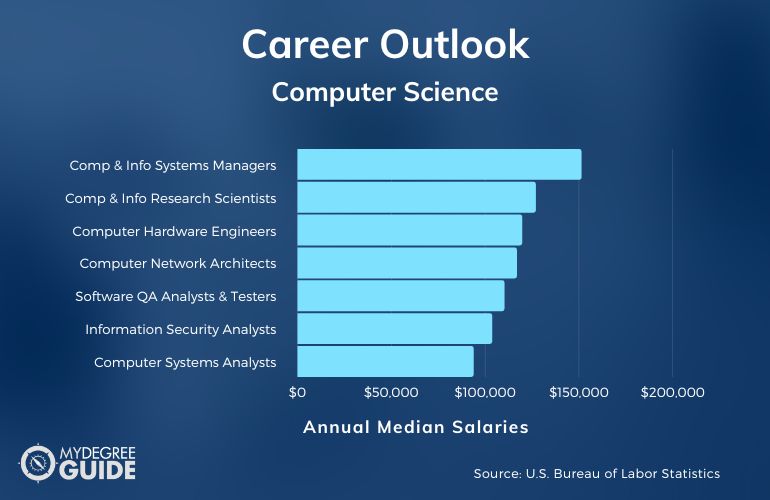
Expertise in the field of computer science is a skillset that can be leveraged across virtually all sectors of the economy.
You may pursue work in local and national government bodies, computer system firms, research facilities, banks and insurance companies, and nonprofit organizations. Terminal degrees in the field may also prepare you for positions in education and academia.
According to the Bureau of Labor Statistics , positions in the field of computer and information technology earn an average of $91,250 per year and have a positive job growth rate of 11%.
A number of positions available to you with a PhD in Computer Science are expected to experience growth over the coming years.
According to the Bureau of Labor Statistics, these positions include computer network architects (5%), computer systems analysts (7%), computer and information research scientists (15%), and information security analysts (31%).
Computer Science Doctoral Courses

Coursework in a part time doctoral program in computer science may cover a wide range of topics in order to provide you with the expertise required to graduate from the terminal degree program.
- Software Engineering : This course looks at methods used in the development of software, including system design, testing, and validation.
- Computational Intelligence : This course is a review of computer intelligence foundational practices and techniques, including granular computing, data mining, and distribution.
- Operating Systems : This course is an overview of topics related to operating systems, resource management, and system implementation.
- Advanced Image Processing : You’ll take a look at image digitalization, processing, and enhancement practices as well as restoration, filtering, and segmentation.
- Network Security : This course is an advanced exploration of various areas of network security, including security standards-SSL and TLS and SET, authentication, and digital certificates.
- Modeling and Simulation : You’ll review modeling and simulation theories and applications in the field of computer science.
- Data Mining : This course is an overview of graph mining practices and algorithms, including R-MAT graph generators, PageRank, and SimRank.
- Programming Language Concepts : You’ll review programming language fundamentals, including syntax and binding times.
- Logic Programming : This course is an overview of deductive databases in applications and logic programming in computer science.
- Human-Computer Interactions : You’ll explore current and emerging trends and topics in the area of advanced computer and human interactions.
In addition to finishing all required coursework, you may need to complete a dissertation to graduate with your degree.

While admission requirements for a PhD in Computer Science part-time program may vary from school to school, some common criteria include:
- Completion of a bachelor’s or master’s degree . Some schools may allow you to apply for admission with a bachelor-level education while others may require you to hold a master’s degree.
- GRE or GMAT scores . While this requirement is becoming less common, some schools may still request your test scores in order to apply for their programs.
- Letter of reference . You may be required to submit reference letters from previous academic supervisors or employers speaking to your fit and qualifications for the program.
In addition to the above requirements, some schools may require you to complete an online application, provide a copy of your resume or CV, and write a letter of intent.
Accreditation

When a school is regionally accredited, it means that the programs offered are of high academic quality and have met a predetermined set of quality standards.
The accreditation status of a program can not only impact your ability to transfer credits to other programs but may also influence your ability to qualify for financial aid. An accredited degree may also be perceived as better quality by potential employers, and they may place higher regard on your qualifications and expertise.
You may find out if the school you’re interested in attending offers an accredited computer science PhD program by searching the U.S. Department of Education’s website .
Financial Aid

There are a number of resources available that you may be eligible for that can help cover the costs related to part time doctorate programs.
Financial aid opportunities for your PhD education may include federal or state grant and loan programs, scholarships offered by private or public organizations, or even a training program through your employer.
In some cases, the school where you obtain your PhD may also offer financial support. Depending on the school’s specific offerings, you may be able to obtain funding for the cost of tuition as well as a stipend for living expenses. This is the case even at the best computer science universities .
For more information on financial aid, you can visit the U.S. Department of Education’s website .
Should I Get a PhD in Computer Science?

Obtaining a PhD in Computer Science may require you to invest time in courses such as theoretical foundations of computer science, algorithm design, software engineering, data structures, software modeling, network security, machine learning, and data visualization.
You may also undertake a great deal of research in order to complete your dissertation. If you enjoy solving complex issues and working with technology at an advanced level, then a terminal degree in computer science might be a beneficial path for you to consider.
What Can You Do with a PhD in Computer Science?
There are a variety of careers that you may pursue with a PhD in Computer Science. These include computer and information systems manager, computer and information research scientist, computer hardware engineer, computer network architect, and software quality assurance analyst.
Other career options may include software developer and programmer, information security analyst, computer systems analyst, postsecondary teacher, or network and computer system administrator. After obtaining your degree, you may be prepared to even open your own business offering consulting services.
Are There Any Part Time PhD Programs?

Yes, there are PhD programs in computer science that can be attended on a part-time basis. The specific number of credits required to graduate may vary from school to school, but PhD programs in computer science generally require you to complete between 72 to 90 credits.
The number of credits required remains the same regardless of whether you enroll on a part-time or full-time basis. Attending part-time, though, will often take you longer to complete your degree than a full-time study schedule.
Depending on the program you choose to enroll in, you may have the opportunity to attend courses online or on-campus on a part-time basis.
Does a Part Time PhD Have Value?
The educational value of a part-time PhD program should be similar to that of a full-time program. The primary difference is that a part-time PhD program will often take you longer to complete since your course load will be less per semester than the full-time option.
Other factors that may influence the value of a part-time PhD also impact the value of the full-time counterpart. One such factor may include the accreditation status of the program or school you’re attending.
How Long Does a Part Time PhD in Computer Science Take?

Traditional PhD computer science programs may require you to complete between 72 to 90 course credits. With full-time attendance, this may be completed within 3 to 5 years.
Part-time studies inevitably extend the length of time it may take for you to graduate from a program, but the specific amount of time will vary depending on the course load you have each semester. For example, if you have half of the regular course load each semester, then you can expect the program to take you twice as long to complete.
There may be other factors, though, that can influence the length of time required to complete your degree part-time. These factors may include maintaining enrollment continuously throughout the calendar year or transferring previously earned credits into your program.
Is a PhD in Computer Science Worth It?
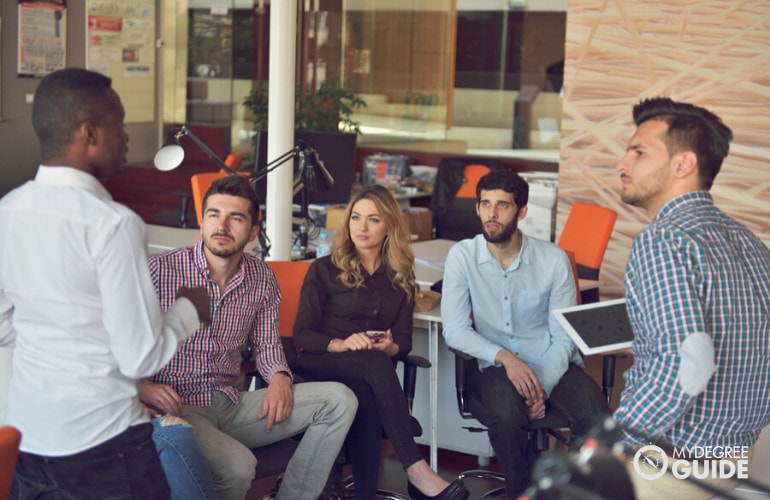
Yes, a PhD in Computer Science is worth it for many students. According to the Bureau of Labor Statistics, computer and information technology jobs are set to grow at 11% over the next 10 years, faster than the average for all occupations.
Common computer science careers in this field include postsecondary computer science teacher, computer and information systems manager, computer and information research scientist, computer hardware engineer, and computer network architect.
In these positions, you may find employment within government institutions, private sector businesses, nonprofits, educational facilities, or within your own business as a self-employed consultant.
Getting Your PhD Part Time

Earning a PhD in Computer Science may offer you the opportunity for a challenging and rewarding career. You may have the ability to teach aspiring computer scientists, contribute to research in the field, or apply your knowledge in a hands-on manner for various organizations.
Part-time PhD programs in computer science may prepare you to leverage your expertise in the theoretical foundations of computer science, algorithm design, network security, and data structures, among other areas.
If you’re interested in advancing your career in this rewarding field, then you may want to research various accredited, part-time PhD computer science programs to find the one that best suits your schedule and your professional goals.

- Online Doctoral Programs
- Part Time Doctoral Programs
- Executive Programs
- Accounting Programs
- Finance Programs
- Marketing Programs
- Management Programs
- Software Engineering Programs
Education Programs
- Counseling Programs
- Neuroscience Programs
- Nursing Programs
- Physical Therapy Programs
- Creative Writing
- English Programs
- Clinical Psychology Programs
- Criminal Jusitce Programs
- History Programs
- Political Science Programs
- Psychology Programs
- Social Work Programs
Professionals seeking to obtain a Ph.D. may enroll in a part-time program to meet their educational goals. Part-time studies allow working professionals to obtain their degree without accepting a reduction in salary.
The program of study requires that students fulfill the same requirements as their full-time peers. Students who are enrolled part-time are afforded between 7 and 10 years to complete the program of study. Full-time students pursuing a Ph.D. may complete their program of study in 2 to 3 years depending upon the curriculum.
Many universities will place restrictions on the number of courses a student can complete part-time. However, most universities will require that professionals enroll each quarter to complete their program of study.
About Part-Time PhD Programs
According to the National Center for Education Statistics (NCES), half of the students enrolled in graduate school are enrolled part-time. Between 2007 and 2018, the National Center for Education Statistics expects a 10 percent increase in graduate student enrollment.
Ph.D. programs differ based upon the desired curriculum the student wants to study. Some Ph.D. programs, such as the Executive Doctoral program, require professionals obtain a specified amount of work experience prior to enrollment. Academic teaching Ph.D. program requirements vary from program to program. All Ph.D. programs require students complete a Master’s degree prior to entering a Ph.D. program.
Some academic programs place other limitations on students enrolled part-time. These restrictions may include limited financial aid awards and limited insurance benefits for part-time students. Part-time students must be approved by the school’s administration prior to enrollment into any academic program. These students may take longer to finish their programs. However, part-time students do not tolerate a pay reduction. Doctoral degrees may offer advancement for executives. Alternatively, doctoral degrees may offer advancements in the academic arena.
Part-time doctoral programs may take place online or in a traditional classroom setting. Distance-learning classes may consist of Web 2.0 technology to disseminate tasks, case studies, video instruction, and other instructional tools.
Experts at the National Center for Education Statistics (NCES) state that academic institutions award more Doctorate degrees in engineering, education, health professions, biomedical sciences and psychology. Individuals who receive doctoral degrees in these areas have earned a Doctor of Education, Doctor of Philosophy or a Doctor of Medicine.
Part-Time Doctoral Degree Curriculum
Ph.D. curriculum varies depending upon the course of study chosen. In general, however, students will be required to learn critical thinking skills that may be applied to their chosen professions. Some of the curriculum may be centered on the following concepts:
- Strategy / Strategic Thinking
- Research Methodology
- Data Analysis
- Management Skills
- Leadership Skills
- Dissertation Thesis Seminar
Online Part-Time Doctoral Programs
Kansas state institute.
www.ipfp.k-state.edu
Kansas State Institute of Personal Financial Planning possesses a Ph.D. program that is conducted largely online. The program allows individuals who wish to remain in their careers to enroll in a Ph.D. program. The program is offered by the School of Family Studies and Human Services.
Most students may complete this program of study in as little 5 years. This program involves primarily online courses with intensive summer courses for 10 days. The final summer session will take place abroad to allow students to witness global markets in action. Students will learn how the global economy affects financial planning in the United States.
Students of this program will be given case studies to assist them in solving practical problems in the workplace. Knowledge of personal finance and relationships will be imparted. Teaching, researching, publication, professional groups, and leadership skills will all be taught as a part of the curriculum. Those who complete the program will be qualified to become a registered financial consultant, certified retirement counselor, registered financial associate, or an accredited financial counselor.
Syracuse University
ischool.syr.edu
Syracuse University offers professionals access to a part-time online Ph.D. program for working professionals. This program focuses on developing the skills of working professionals who would like to advance in the executive world. Promoting positive change through executive leadership is the goal of the doctoral program. Executives learn to manage, evaluate, and implement strategies that direct change in organizations.
Information management is a primary focus of the doctoral program. Syracuse University believes that organizational change relies upon efficiency of information management. The university trains professionals to direct change and implement programs to improve the flow of information in the organization and to clients. These skills are necessary in the field of public administration, network management, library management, military, and information management.
Sixteen courses are required to complete the Executive Doctoral program. The 16 courses consist of 6 residential seminars, 4 methods courses, 4 online doctoral seminars, and 2 master’s level practical courses. The 2 master’s level courses will be in one of the following areas: Network Management, Library Science, Information Management, and Telecommunications.
Offline Part-Time Doctoral Programs
Massachusetts school of professional psychology.
www.mspp.edu
The Massachusetts School of Professional Psychology offers students a part-time program in the Doctor of Psychology (PSYD) in Clinical Psychology Program. The academic school accepts students on a limited basis part-time. Students will be admitted into the Doctoral Clinical Program with an option of initial part-time enrollment. These students require special permission and will be accepted on a space available basis. Students desiring enrollment must indicate this request on their application.
The first year of this program must be completed in a maximum of two years. The remainder of the program must take no longer than 7 years to complete. Massachusetts requires students take a minimum of three academic courses per semester. Two of the courses must be either theory-based or clinically focused courses.
The first year will primarily consist of academic coursework. The second-year students are required to enroll in Clinical Seminar I and Practicum I, in addition to another course. In the third year, students are required to enroll in Clinical Seminar II and Practicum II.
Students must also enroll in an internship that must be completed in two consecutive years. The two half-time internships are integrated with coursework from classes during those same years. Students must work with their advisors in order to establish a program tailored to their specific needs.
Waiting lists are available for part-time academic programs. Students may be placed on the list until a space opens up for the student to matriculate into school.
The University of Western Ontario
www.fims.uwo.ca
The Faculty of Information and Media Studies is offering a part-time doctoral program in Library and Information Science. This particular program admits between 1 and 2 students per year. Students should meet the same requirements that are required of full-time students for enrollment. Students must complete a four-year academic degree with Honors. This requires that students have a B average or higher upon graduation.
Applicants must also possess a Master’s degree in Library and Information Science. Those students with Master’s degrees in another program of study must complete five courses in the Library and Information Science Master’s program. Additionally, the students must complete six doctoral programs as well.
Students enrolled in this program of study part-time are not eligible for the School of Graduate and Postdoctoral Studies funding. Part-time students also may not hold external scholarships that require full-time status, if enrolled part-time. Part-time fees are simply the full-time rate divided in half.
New York University
www.nyu.edu
New York University offers students desiring a part-time Ph.D. program the opportunity to pursue the computer science course of study. These students are required to complete two courses per semester. Students who enroll in this program of study are not eligible for insurance through the school or financial aid.
Students have 10 years to complete the computer science Ph.D. program part-time. Some courses may be exempted from the curriculum if students pass an exam with a minimum of an A-.
New York University is located in Manhattan. The school has educated several Pulitzer Prize winners and Nobel Laureates. Last year, 400 students were awarded their doctoral degrees from the university. The school has also had the opportunity to have educated 70 graduate students on the prestigious Guggenheim Fellowship in the past 17 years.
Job Opportunities for Part-Time Doctoral Programs
The majority of doctoral graduates are employed in health services and academia. In fact, according to a 2000 study by the Bureau of Labor Statistics, 28 percent of doctoral graduates were employed in academia and 21 percent of doctoral graduates were employed in health services. The remaining graduates are employed in a variety of fields. The industries include Business, Finance, Insurance, Real Estate, Legal Services, Education and Public Administration.
The unemployment rate for doctoral graduates is one of the lowest. According to a 2004 study, the unemployment rate for doctoral graduates is 2.1 percent. The same study indicated that the rate for people with an Associate’s degree is 4.0 percent. Of course, these studies were conducted before the recession. However, that is traditionally the case. Doctoral graduates also tend to earn more in the work place. Median earnings for a doctoral graduate can be as much as 62 percent higher.
Executives that earn their doctoral degrees may be employed in the following professions:
- Chief Executive Officer
- Chief Operating Officer
- Chief Financial Officer
- Professional Consultant
- Vice President of Finance
- Vice President of Marketing
- Academic Professor
Their salaries are some of the highest of all professions. The median salary of executive doctoral candidates is $167,280. Some areas such as the New York Metropolitan area, San Jose Metropolitan area, Bridgeport Metropolitan area and Durham, NC each have a median salary between $217,080 and $210,380. States with the highest median salaries for executives with Doctorates are Delaware, New Mexico, California, New Jersey and Connecticut.
Individuals with Professional Doctorates will primarily focus on applied use of the theory obtained during their studies. Doctor of Health Sciences, Doctors of Education, Doctor of Business Administration, Doctor of Professional Studies, Doctor of Dental Medicine, and Juris Doctor are all professional doctorates that apply their studies within their field rather than teach full-time. Some of these professionals also choose to teach in addition to their studies. However, their primary focus is applied use of the theoretical knowledge obtained during their course of study.
In 2009, the number of applicants applying to doctoral programs rose. However, recent graduates are accepting public service jobs, such as Teach for America and other public service jobs. At Ivy League schools, like Harvard, employer recruitment is down 19 percent. Employers expect to hire 22 percent less graduates from schools nationwide in all fields. In the Northeast, employers expect to hire 39 percent less graduates from all schools nationwide.
Currently, many areas are experiencing a shortage of doctoral graduates. Health care fields, computer science, and accounting are seeking doctoral graduates to replace executives and academic professors that are retiring. Professionals enrolling in these professions are more likely to find a position despite the current economic decline.
Top Ranked Doctoral Programs
Search for other great programs, 18 responses to “part time doctoral programs”.
Are there any “classroom” part time doctoral (PhD) programs in Massachusetts?
Dear, I would like to admitt into PhD in History. I am rigorous poor. Thanks.
Can I please get more info on the phd part-time programs? Also, enrollment info would be appreciated.
I am looking the worldwide accredited university where I can take PhD by monthly expending on $10. Thanks
Hi, I am a tech journalist with over 8 yrs o exp. I am very much interested in pursuing a PhD Program in New age Media. May I know what systems do you have for working pros?
I am based out of New delhi, India.
executive phd detail
I wish tpo pursue an online programme with Phd in SAP Business systems.Please advise suitably.
Thanks and Regards Saswati Chakraborti
Trying to find an online history PH.D program..
Sean I would like to find a Phd online program in history also. If you find one, please let me know.
I have done masters in Library and Information Science and masters in Information Technology. I want to go for Ph.d in Library/Information Science with scholarship.
Pls send details
Wish to pursue any doctoral program that enhances my skills in sustainable development work
I am interested in furthering my education on a part time basis.
I am completing my MIRHR at University of Toronto.
I am looking at a PHD in organizational behavior, business management or leadership.
Can you provide me with some options ?
I’m looking for PhD part-time program in clinical health psychology and I wonder Is it possiple to conduct the reseach at my work place?
sir my wife finish m.sc.,m .phil statistics she has 7 years experience now she is working engineering college she want to part ph.d statistics sir pls guide me i am tirunelveli distict tamilnadu state i am also middle class family
I am a post graduate dgree holder in food safety management and 21 years industry experienec in food safety. I am looking for for a part time Phd programme any where in the world in food safety.
plz tell me, is it worth doing online PhD in science? will i be getting post doc jobs after getting online PhD. please reply, that would be of kind help.
i am M.Sc chemistry i am from afghanistan i am interested Ph.D program this time i am in Finland as asylum saker please help me mujeeb
Looking fora online part time phd
Share Your Thoughts
Click here to cancel reply.
Name (required)
Mail (will not be published) (required)
XHTML: You can use these tags: <a href="" title=""> <abbr title=""> <acronym title=""> <b> <blockquote cite=""> <cite> <code> <del datetime=""> <em> <i> <q cite=""> <s> <strike> <strong>
Part Time & Online
Business programs, health programs, liberal arts, sociology programs.
- US Department of Education
Doctoral Programs - © 2010 - 2024 Cudazi for ThemeForest.net -->
- Part-Time Study
- Introduction
- Academic Requirements
- Conduct and Safety
Financial Aid
- Non-Resident Students
Harvard Griffin GSAS students are classified as resident students (full time or part time) or non-resident students and must either check in and register through the FAS Registrar’s Office or apply for an alternate status through the Non-Residential Application Portal. The Registrar’s Office also tracks students’ year of graduate study (known as G year), which is calculated from the first date of registration in Harvard Griffin GSAS.
- Cross-Registration
- Enrolling in Courses
- Family Educational Rights and Privacy Act (FERPA)
- Withdrawing from Harvard Griffin GSAS
On this page:
- Part-Time Tuition and Financial Aid
- Part-Time Status for International Students
- Part-Time Health Insurance
- Related Contacts and Forms
A degree candidate who wishes to enroll as a part-time student must complete an application for part-time study and submit it to the Office of Academic Programs for approval. See the academic calendar for deadlines.
- Before applying for part-time study, students should discuss their plans with their advisor and with their financial aid officer .
Part-time study may be approved if the student:
- needs to care for small children at home
- experiences personal ill health or severe illness of other family members
- is under extreme financial strain and has dependents
- is a master’s student in their final term of enrollment.
Tuition and Financial Aid
Part-time students are charged the appropriate per-course rate until the equivalent of two years of full tuition has been paid. Thereafter, they register and are charged reduced tuition as full-time students. They must have paid a minimum total of two years of full tuition and two years of reduced tuition prior to receipt of the PhD unless the degree was completed in fewer than four years from initial registration. If a student who has been part-time completes the PhD in fewer than four years, the student will be charged what a full-time student would have paid over the same period of time.
International Students
Foreign nationals with student visas who are not officially permanent residents of the United States may register for part-time study if they:
- are in their final term of enrollment
- have three or fewer courses remaining
The application must be signed by the Harvard International Office .
Health Insurance
According to Massachusetts law, part-time students must participate in a qualifying student health insurance program or in a health plan of comparable coverage. All Harvard students are automatically enrolled in the Harvard University Student Health Program (HUSHP) and fees are applied to their student account.
Application for Part-Time Study
CONTACT INFO
Academic programs, explore events.
Clearing Universities & Courses
Clearing advice.
Recommended Clearing Universities
Popular Course Categories
Course search & discover.
Start the search for your uni. Filter from hundreds of universities based on your preferences.
Search by Type
Search by region.
Recommended Universities

University of Kent
South East England · 96% Recommended

Ravensbourne University London
London (Greater) · 88% Recommended

University of Surrey
South East England · 98% Recommended
Search Open Days
What's new at Uni Compare

West London Institute of Technology
WLIoT provides students with higher technical skills that are demanded by employers, learn more here!

Surrey has been shortlisted for the University of the Year 2023 - find out more here!
Ranking Categories
Regional rankings.
More Rankings
Top 100 Universities
Taken from 65,000+ data points from students attending university to help future generations
About our Rankings
Discover university rankings devised from data collected from current students.
Guide Categories
Advice categories, recommended articles, popular statement examples, statement advice.

What to include in a Personal Statement

Personal Statement Tips
What is a part-time phd.
With PhDs being offered by universities, more and more have started to offer part-time PhDs as well!

A part-time PhD might be the answer to some of your worries related to committing to long term postgraduate study. Now you have the chance to study a postgraduate degree and work as well!

What is a PhD?
A PhD is a postgraduate doctoral degree, known as a Doctor of Philosophy. Generally, a PhD involves an extensive research project in a specific subject or field. At the end, you will produce a “thesis” on your findings.
What is the difference between a part-time PhD and a full-time PhD?
The difference is the time given to both. As the name suggests, a part-time PhD is a PhD that is studied only part-time, while a full-time PhD is studied in the usual manner.
A part-time PhD typically takes anywhere between five and seven years. Full-time PhDs are, by no means, short affairs, but typically tend to take around three or four years.
How long does a part-time PhD take?
A part-time PhD typically takes five to eight years, but this time period depends on how long the university offers you and how much work you put in. You might have more time than you initially thought and finish it sooner, or your work and life balance may get in the way and it takes longer.
Typically, a full-time PhD is three to four years. However, a thesis deadline can actually be extended for as long as four years.

How many hours a week is a part-time PhD?
There is no set time to how long studying a PhD part-time takes, as it’s down to the hours you put in yourself. If you have a goal of completing a doctorate in five to six years, you’ll find you’ll need to knuckle down in the library a little more often.
Finding part-time PhD courses
It shouldn’t be too hard to find a PhD course.If a university offers a postgraduate course, there’s a fairly high chance that they will offer PhD courses. If you can’t see it listed on the course profile, get in contact with the university - they’ll be happy to help!
You should first decide what area of research you’d like to conduct. After that, research, research, research! Find out whether it has been done before and if it\’s possible to complete it in the time frame you want to. Once you’ve understood this, you can focus on which universities are best suited to you and your project.

Why should I do a part-time PhD?
Whether you choose a part-time PhD will likely depend on your circumstances. There are a couple of key reasons many decide on part-time study.

The cost of study
While the cost of your PhD will be the same as a full-time, many prefer that the costs will be spread out across a longer period of time at a smaller cost.
As you’ll also be studying at your university for less time a week, the costs of travel to and from university will be less than if you were full-time.

Flexibility
It's far easier to adapt your life around your PhD if it is studied part-time. If your life is a bit hectic, then a part-time PhD gives you the chance to attend to other matters in your life without the fear of not completing your PhD.
If your situation changes, there is always the opportunity to change to a full-time study.
The reason you choose part-time is down to you. You may find that a full-time PhD suits you better than a part-time PhD course, so consider your situation before you make your choice.
Is there part-time PhD funding?
Yes, there are PhD funding options available. PhD loans can be found through businesses willing to sponsor your work, charities and trusts who may benefit from your research, nationwide grants , or through the government.
Student finance may also be available to you. Essentially, if you won’t receive a studentship , then Student Finance may step in, but it’s unlikely that it will cover the full cost of your PhD. Loans can be available for up to £28,000 depending on circumstances.
postgraduate Universities
Postgraduate uni's.

Northumbria Uni
244 courses

129 courses
Want to learn more about a university?
Get your questions answered by sending them an enquiry now.
Study Postgraduate
Part-time study.
Approximately 20-25 per cent of PhDs in the UK are taken part-time ( HEFCE 2015 ). It offers many PhDs the flexibility to combine other commitments alongside their research. For some it is a match made in heaven; for others mission impossible. Before you decide take time to reflect on whether it is right for you.
Key Benefits of Part-Time PhD Study
- Maintain an income while studying
- Maintain your employment rights, such as a pension
- Improve your future employability whilst working
- Ability to balance family commitments with studying
- Keep “in touch” with the working environment
- Opportunity to engage in research in relation to working life
- Some part-time students receive funding from their employers
Warwick supports the research and study skills development of both part-time and full-time PhDs.
Before you commit to doctoral study, it is worth taking some time to consider the implications on both your personal and professional life and think about where you may need to make changes to accomodate your studies:
Time Management
- A part-time PhD can take over 5 years to complete: can you realistically commit to the programme for the duration?
- Consider what you might need to alter in order to accommodate your research. You may find it helpful to block out set times of the week in which to undertake your study.
- Think about what inspired you to take on part-time research. Are you confident that your motivation levels will remain high throughout the programme?
- There are times when a researcher may feel isolated, this is especially true when studying part-time. Do you feel you have sufficient levels of self-motivation to carry you through these times?
- Many part-time researchers feel a greater temptation to "take a break" from their studies, plan in strategies to help keep yourself motivated through such times.
- Don't forget your work/life balance. Doing research is like any job, it is important to take breaks, holidays and spend time with family and friends.
- Nine part-time PhDs share their experiences and tips on Vitae's website
Other Considerations
- Ensure that family and work colleagues are aware of your programme, and supportive of it, before you start out.
- Do your current personal and professional commitments leave you enough time to undertake part-time study as well?
- Do you have a place to study away from distractions of your family life?
PhD in 60 seconds

15 PhD students explain their research in just 60 seconds.
- Watch the videos
Meet our current research students
- Wolfson Research Exchange
Learn from the experience of other part-time PhDs
- Postgraduate Blogs
- Click to set high contrast
- Leadership team
- Advisory board
- Our history
- RSM Faculty Council
- Honorary doctorates
- Accreditations
- Positive Change
- Institutional partners
- Corporate partners
- Meet our employees
- Open positions
- Admission requirements
- Tuition fees
- Scholarships
- Open online courses
- Bachelor Bedrijfskunde (Dutch)
- Bachelor International Business Administration
- MSc programmes
- Premaster programmes
- Executive Masters
- International Full-time MBA
- Executive MBA
- Global Executive MBA
- Cologne-Rotterdam MBA
- Programmes for individuals
- Programmes for organisations
Part-time PhD programme
- Full-time PhD programme
- Career Centre
- International Office
- Study Advice
- Examination board
- Faculty directory
- RSM Discovery
- Business-Society Management
- Marketing Management
- Organisation and Personnel Management
- Strategic Management and Entrepreneurship
- Technology and Operations Management
- Corporate Communication Centre
- Erasmus Centre for Leadership
- Partnerships Resource Centre
- Erasmus Centre for Data Analytics
- Erasmus Centre for Entrepreneurship
- Erasmus Initiative: Dynamics of Inclusive Prosperity
- Case Development Centre
- Erasmus Centre for Women and Organisations
- Institutions for Collective Action
- Erasmus Platform for Sustainable Value Creation
- Erasmus Centre for Study and Career Success
- Future students
- Current students
- Exchange students in & out
- Professionals
- Recruiters and organisations
- Researchers
- Journalists & media
- Future employees
- Faculty & Research
- Part-time PhD programme | study & research as you work
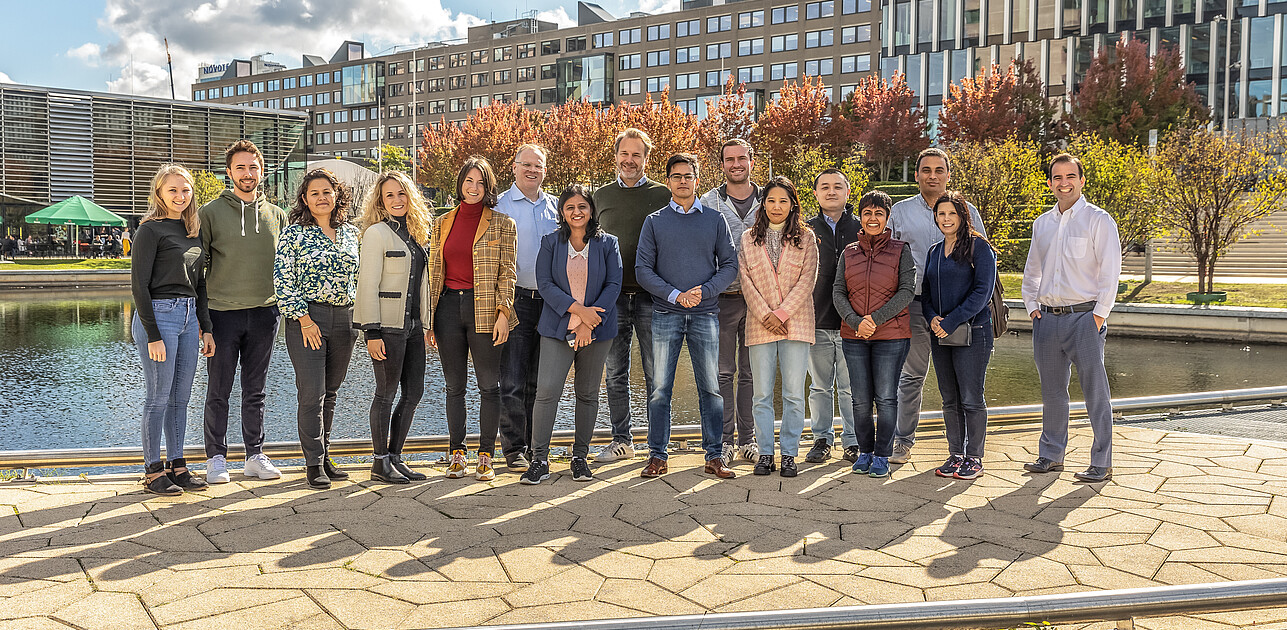
September 2024
New knowledge for your business
New knowledge from research is always needed in business. Sometimes, the best person to carry out that research is you.
Business professionals interested in further developing their academic skills while researching their own business activity or industry can now take part in academic study and research at the same time as working. This new six year programme leads to a PhD degree from Rotterdam School of Management, Erasmus University (RSM).
RSM’s Part-time PhD Programme in Management (PT PhD) started in September 2015. It has the academic rigour of a full-time PhD degree, and produces new and practical knowledge that can be absolutely relevant to your particular area of business.
A programme of theoretical foundations as well as a strong methodological basis organised into manageable modules
Supervision and coaching by RSM’s top research faculty
Access to RSM’s excellent research facilities, electronic journals and databases, as well as its world-class conference events and research seminars
Programme details
Why this programme, joining the part-time phd programme at rsm gives you.
- access to cutting-edge research in a vibrant academic community
- the opportunity to publish parts of your PhD thesis in top international managerial or academic journals, and present your work at scientific conferences
- an internationally recognised PhD degree from one of Europe’s leading business schools resulting in prestige in both the corporate and scientific worlds
- a range of specialisations that reflect important and widely-applicable topics in business and industry such as logistics and information systems, strategy and entrepreneurship, marketing, finance and accounting, and organisation and leadership
- a large and highly active international network of alumni and corporate relations
Rotterdam School of Management, Erasmus University (RSM) is a leading European business school, ranked consistently among the top three business schools in Europe for research and 17th worldwide. RSM provides ground-breaking research and education furthering excellence in all aspects of management and is based in the international port city of Rotterdam – a vital nexus of business, logistics and trade. RSM’s primary focus is on developing business leaders with international careers who carry their innovative mindset into a sustainable future thanks to a first-class range of bachelor, master, MBA, PhD and executive programmes. RSM also has an office in Chengdu, China. Highlights of RSM’s cutting-edge research in business and management can be found at www.rsm.nl/discovery .
The five- to six-year programme has eight modules, each of three or four consecutive days based in Rotterdam. They cover a broad range of theoretical foundations and practical skills. All modules are taught in English. Your PhD thesis will also be written in English, according to international academic standards.
Programme schedule
- Year one: four residential modules cover research methods, skills and foundations, and writing your research proposal
- Year two: a residential module covering field-specific specialisations, master classes, and a ‘back to campus’ module for PhD candidates to present their work.
- Years three and four: a ‘back to campus’ module
- Year five and six: ongoing writing of the dissertation
Schedule year 1, 2023/2024
Module 1.1 25 - 29 September 2023
Module 1.2 27 November - 1 December 2023
Module 1.3 12 - 16 February 2024
Module 1.4 20 – 24 May 2024
Schedule year 2, 2023/2024
Module 2.1 13 – 17 November 2023
Module 2.2 23 – 26 April 2024
Schedule year 3, 2023/2024
Module 3.1 23 – 26 April 2024
Schedule year 4, 2023/2024
Module 4.1 23 – 26 April 2024
For admission to the Part-time PhD programme at RSM, you must
- be an in a relevant discipline with a strong interest in research, willing to combine the Part-time PhD Programme with your full-time or part-time job
- have a strong interest in research and proven track record that includes excellent study results, or writing and publishing white papers, articles or other work
- hold an Msc degree in a relevant discipline. If you hold an MBA and have written an MBA thesis to complete it, you may be eligible for the programme as well. In case of doubt contact the PT Phd Office ([email protected])
- have proof of proficiency in English (see below)
In addition to these formal requirements, candidates will be selected according to excellence. Your CV, motivation, research ideas, and if applicable, your reference from your future supervisor or supervisors will be taken into consideration.
The Admissions Committee may also ask you to take a GMAT test as part of the evaluation process.
RSM requires that candidates whose native language is not English have to submit scores of the TOEFL/IETLS test. RSM requires a TOEFLE score of at least 100 on the internet based test and 600 on the paper based test. For the IELTS, the minimum overall band score required by RSM and ESE is 7; furthermore the language test results should not be older than 2 years. If you are a native English speaker, or if the language of instruction of your entire university education (bachelor and master programme) was English, you may apply for a TOEFL/IELTS waiver.
The programme fee is € 10,000 per year for the first two years, € 7,000 for year 3 and 4, and € 6,000 for each subsequent year, up to a maximum of €46,000.
These costs cover your admission to courses, tuition, coaching and supervision, your access to RSM’s research facilities, the cost of design, layout and printing for your PhD thesis, and the support of our communications team, for example to publicise your research findings to the corporate world and appropriate media.
A small number of tuition fee waivers will be considered in exceptional situations, where academically excellent candidates are not able to financially sustain program participation from their own resources. Waivers are granted for the duration of one year only. Decisions on the continuation of grants are taken on an annual basis and are contingent on study progress, need for financial support, and available budget.
Candidates who wish to apply for a tuition fee waiver need to indicate this during their application or, for enrolled candidates, at least two months prior to start of the academic year. Waiver requests need to accompanied by a credible demonstration of financial necessity. This includes evidence of own income and the impossibility to obtain external financial support, such as a contribution from the employer or a research scholarship.
The application deadline for the 2023 round of our programme has passed. We will not accept any more applications. We would like to invite you to apply for next year’s cohort in January 2024.
How to apply?
Please have a look at our PhD project descriptions structured by research areas which you can find here . Applications can be submitted in our application portal which will open on January 10 th 2024 and closes on the 15th of March 2024. An application should consist of the following documents:
- A motivation letter that refers to a research area specified in our open projects . Please sketch your background, research idea and intended research approach, and clearly relate it to one or several of the topics described in the research area of your choice. The additional submission of a research proposal is optional (see point “proof of writing” below).
- A brief research statement (one page suffices) in which you outline the type of research questions that you intend to study and the type of methodologies that you intend to employ. You may broadly sketch your interests or be specific about concrete research questions that you envision answering. You may also explain whether (or not) you intend to utilize data from your current employer and/or work on research questions related to your current profession.
- A proof of writing in English language. The purpose of this document is to demonstrate that you are capable of writing academic texts in English. This can be, for example, a chapter of your Msc or MBA thesis, a paper, or a research proposal for your intended research.
- Proof of English, i.e. the results of a TOEFL or IELTS test not older than two years
- BSc and MSc or MBA diploma + grade lists (for both)
- Curriculum Vitae
- Optional: if you have already been in contact with RSM faculty who would be willing to supervise you if you are accepted to the program, please add a letter of recommendation from your intended promotor at RSM
- The statement that you cannot pay the tuition fees from own resources
- A summary of other funding opportunities (e.g., employer contribution, scholarships outside of RSM etc) that you have explored so far
The Admissions Committee may also ask you to take a GMAT test and/or to submit additional documents as part of the evaluation process.
What is a research proposal?
A research proposal is a written ‘plan’ for the research that you want to conduct as a PhD student.
Most research proposals start by briefly sketching the broader context in which your research is embedded and by highlighting its relevance.
A good research proposal, however, then manages to narrow down the focus to one or several approachable research questions : these are the questions that you plan to answer in your research.
Thirdly, your research proposal should give insight into the methodology that you plan to use, that is, you explain how you plan to answer your research question. This includes data collection and access. If you have access to data or information, due to your day job or network, that will help you in answering your research questions, you can mention this in your methodology.
Fourthly, in your research proposal you demonstrate that you are aware of the state of the academic literature regarding your research topic, and, if it is practice-related, of the state of the art in practice. You do that by including a literature review and a review of practice .
In summary, a good research proposal shows that:
- you have relevant and innovative ideas about your research topic;
- you know and understand what is already known and have identified a ‘gap’;
- you aim to address with your research;
- you have an executable plan;
- you are the right person to execute it.
Towards the end of the first year of the part-time PhD programme, we expect all PhD candidates to have a good research proposal.
During your application to the programme, you can attach a research proposal as ‘proof of English writing’ but it is not required. If your research ideas are not yet concrete enough to write a good research proposal, it is sufficient to sketch them in your cover letter and attach a different document as proof of English writing (for example a Master or MBA thesis, a report, or a paper).
Please be aware that acceptance to the programme does not imply ‘acceptance of the research proposal’. Most likely your supervisory team will challenge you to improve and change it during the first year in the programme.
In general, a research proposal is never ‘set in stone’. Research plans may and will change while the research progresses (also after the submission of the proposal at the end of programme year 1).
PhD candidates
Rotterdam School of Management, RSM University hosts approximately 100 parttime PhD candidates from a great variety of professional and academic backgrounds. Are you interested in their profiles? Have a look at their profiles below. If you are curious about their motivations and experiences, read their testimonials in the "Testimonials" section.
Would you like to become one of the new candidates, starting in September 2021? See our admission criteria in the "Admission & Tuition" section and find out how to apply in the "How to apply?" section.
Dijana Aleksic
Izaak Dekker
Niels Eldering
Ahmed Gaara
Xiaowei Kang
Ruud Kuijpers
Francesco Lovecchio
Folkert Mulder
Arabella Pollack
Henk Jan Reinders
Ana Maria Sierra-Maya
Anna Tillmann
Jaime Alberto Caballero Santin
Somaye Dehban

Leon Yehuda Anidjar
Pascal Carpentier
Liselotte Dijkstra
Syed Gilani
Roland Kemper
Christina Langenbusch
Juan Carlos Martinez Delgado
Malika Ouacha
Max Renault
Katrina Simon-Agolory
Xiaonan Wang
Ramiro Caso Besada

Björn Atterstam
Guillem Casoliva-i-Cabana
Ajlin Dizdarevic
Sebastian Freyhofer
Jasper Heeren
Raj Reddy Konduru
Daniel Liebau
Afonso Medonça dos Reis
Mariapia Pazienza
Dan Raghoonundon
Alexander Schmidt
Valerie Sydry
Aleksandra Wrobel
Patrick Vestner

Elisah van Kempen

Michael Putra

Filipa Pires de Almeida

Clovis Rondineli Silva

Ronny Reshef

Curtis Meloy Goldsb y

Denver Berman-Jacob

Linda van Rijn

Florian Madertoner
T: +31 (0) 10 408 8038

Shijian Chen

Philine van Overbeeke

T: +31 10 4088168

Puck Hendriks

Daniel Schmidt

Testimonials
Find out why our current participants are enthusiastic about the Part-time PhD programme in the "PhD candidates."
Would you like to become one of the new candidates, starting in September 2021? See our admission criteria in the "Admission & Tuition" section and find out how to apply in the "How to apply?" section.
Ana Maria Sierra Maya
Why did you choose the RSM part-time PhD program?
I chose the RSM part-time PhD program because I want to be part of the RSM mission to be a force for positive change in the world having an impact in society through business research.
The RSM part-time PhD program is a great opportunity to combine my executive activity with top notch research abilities, the program is designed to suit the agenda of active executives. The quality and support of all the professors, of the supervisory team and the program coordinators inspires and effectively guides the PhD process.
What do you like about the program?
I like how the RSM part-time PhD program has challenged my skills and views. This program gives me a structured approach to top quality research and reignites my understanding of management. I specially enjoy the lectures and conversations with the RSM faculty, a community of highly rated academics that open the black box of scientific research philosophy and tools in an inspiring and enthusiastic way. I am proud to be part of this program and willing to create knowledge combining my decades of real business experience with the wisdom of the global research community that is now available for executives through this unique program.
Curtis Goldsby
I applied to RSM’s part-time PhD program because of its winning combination of academic rigor and professional emphasis. As one of the top European institutions for progressive management research, RSM has poured its longstanding experience with academics into a part-time PhD program that gives professionals the knowledge and tools needed for rigorous academic research. For instance, the program systematically guides students to produce and publish high-quality academic articles. Because part-time PhD students typically work at the heart of pressing managerial challenges, RSM’s program is also designed to provide enough flexibility to accommodate the part-time schedule of professionals. Taken together, this makes for a rigorous and flexible program that leads to a sustained and effective learning experience for professionals!
I commend that RSM’s part-time PhD program accounts for the individual needs of students (e.g., schedules, topics, supervisors), and that the program provides a structure in form of “modules” intended to support the student in producing high quality academic work.
I researched and compared a fair bit across the different programs available for working professionals globally before submitting my application. What I liked a lot about RSM/Erasmus University was a clear focus on high-quality research. There are probably easier paths to a doctorate. But if one wants to learn how to conduct best-in-class academic research, this is the right place. I have not seen any other University that offers a part-time PhD program with the same rigor, especially in my area (Finance).
Three things really: First, I very much liked the many courses and seminars on research methods during the first 18 months of the program that were taught by senior faculty members. They helped me to gain a good understanding of the techniques required to do academic research. Second, and most importantly, I am most thankful to work with my two supervisors, Peter and Thomas. They have excellent research experience and expertise. Their work is being published in the very top academic journals in Finance and Management. For me, as a novel researcher, this is an excellent opportunity to learn from the best. Lastly, I am very thankful for having met my fellow PhD candidate friends in the cohort. They are a diverse, smart and global group of people I can learn from.
I was aware of the RSM reputation for the quality of faculty and the high standard of research. I wanted to be exposed to, and stretched to the higher level of academic curiosity, while keeping in sight practical application of my research. Additionally, I liked a very organized and structured approach to lectures, as well as opportunity to be part of the cohort with other students.
My advisors are experts in their fields, who have given me an invaluable guidance, support and questioning that is keeping me even more motivated to continue with my research. I enjoy the camaraderie of the participant in the part-time PhD program, not just from our cohort, but also other cohorts, to mix fun with a forum to talk about research.
The RSM program introduces professionals and business leaders to the world of academic rigor and guides them through the exhilarating processes that accompany a PhD. During this journey, the diverse group of ambitious and experienced fellow part-time PhD-candidates offer moral support and camaraderie.
Having finished my MSc many years ago, I like the solid foundation of the first one and a half years. During the first one and a half years, the courses were a good refresher. The workload also prepared me for the hard work that comes after that.
I enjoy the contact with my fellow cohort members. They understand what it is like to be in a Ph.D. trajectory, and they are great sparring partners. I also like that it is possible to take additional courses that contribute to my projects, apart from the mandatory program. More plusses are my advisors, the facilities, and the campus.
Open projects
Open projects in the area of "accounting and control".
Financial scandals around the world have harshly shown the importance of transparency and reliability in performance reporting systems. Companies that fail to clearly communicate externally with investors on their investments, financial position, and financial performance likely face increased difficulty accessing external financing or an increased cost of financing. Companies that do not report, evaluate and compensate performance transparently and equitably internally, can create detrimental organizational cultures and can stimulate managers to behave opportunistically by managing earnings, by gaming the performance measurement system and by acting myopically.
Accounting is the research discipline that examines the role of accounting information in companies´ communications, both externally and internally. Top and middle managers, as well as outside providers of financing such as banks and equity investors, use accounting information for decision making and control purposes.
The objective of this Ph.D. project is to identify and analyze innovative research questions in the area of accounting. The project can apply to the subfields of managerial and/or financial accounting (incl. auditing), or on the intersection thereof, depending on research interests and goals, and skills and preference of the candidate. This research project has a strong potential to influence companies’ external and/or internal communication policies and/or accounting and incentive systems, as well as influence regulatory policies and/or accounting institutions.
Open projects in the area of "Business Information Management"
We live in a highly connected world that is filled with digital technologies, social media, mobile devices, Internet-of-Things, smart cities, and connected cars. Growth of the information technologies has created new opportunities across different industries as companies innovate to meet changes in consumer demand, and has given rise to new challenges. In our Ph.D. program in Information Systems, you will be trained to conduct innovative research to address increasingly complex challenges facing digital society.
We are seeking highly motivated working individuals with demonstrated academic ability, that are committed to interdisciplinary research on significant information technology and management issues, and who desire to pursue a PhD research in this field. As a Ph.D. student, you will gain the training and experience necessary to conduct independent research. You will work closely with the advisors to define, develop, and execute your own research.
You will have the opportunity to collaborate with our faculty members. They are working on a wide-range of interdisciplinary research topics, broadly categorized in three sub-domains: Digital Strategy, Business Analytics, and Energy Informatics. More specifically, the faculty members are interested in supervising the following topics including:
- Digital transformation
- Digital platforms
- Digital marketing and recommendation
- Crowd sourcing and crowd funding
- User generated content
- Mobile advertising
- Digital markets and auctions
- Digital privacy
- Social networks
- Ethics of AI
- AI and decision making
- Energy markets and smart grid
- Smart cities
Open projects in the area of "Business-Society Management"
Acting on unprecedented change
Traditionally, management research takes the perspective of business and focuses on how conditions for business can be improved. Research conducted by the members of the Department of Business-Society Management starts with the challenges that society and our natural environment face and focuses on how business, in partnership with other actors and organizations, can address these challenges. In other words, we help business to take responsibility for the context in which it operates. This is important because our social and natural environments are changing in unprecedented ways. Business contributes to some of these developments, such as climate change, growing inequality, global displacement and also alienation from the general public by losing track of the interests of broader society. Yet, society also changes in ways that are difficult to foresee for companies and other organizational actors alike.
The research conducted by the members of the value based organizing program focuses on a variety of topics—all directly relevant to business acting upon unprecedented change. A common theme underlying all of this research is that it seriously considers the possibility that the way companies do business—including how they relate to the context in which they operate—needs to be changed fundamentally and that small gestures are unlikely to be sufficient to help.
Topics include alternative definitions of and approaches to business, including issues around climate change, corporate communication, sense-making processes in the context of sustainability, business ethics, philanthropy, new business-society strategies, alternative organization forms such as social enterprises and partnerships, alternative governance regimes such as commons, and aligning corporate value propositions with societal issues and social innovation in times of grand challenges and wicked problems. Due to the diversity in research topics, the research methods we use vary widely, from qualitative techniques to survey and laboratory research.
Open projects in the area of "Finance"
The mission of finance research is to enhance our understanding of financial decision-making by firms and managers, the actions of participants in financial markets, as well as the functioning of financial markets and intermediaries.
We are a vibrant and diverse group consisting of leading international researchers. Our faculty undertakes world-class research that is both of high societal relevance and meets high methodological standards. A list of recent publications by our finance faculty can be found here .
Research in our group takes place along three broad lines: The first theme is corporate finance, including interests such as entrepreneurship and private equity. Second, we investigate financial markets and asset pricing. Our third theme is banking and financial intermediation, including asset management.
We are looking for highly motivated candidates that have an interest in undertaking research that is both challenging and rigorous, but also has societal relevance. Candidates may have a background in finance, but we also welcome applicants with an education in Economics or Econometrics.
Currently we especially welcome candidates with interests in the following areas:
• Artificial intelligence and machine learning • Asset management • Banking and financial intermediation • Behavioral finance • Blockchain and tokens • Climate finance • Investments
Open projects in the area of "Innovation Management"
Innovation Management (IM) involves all the actions needed to generate innovative ideas and turn them into attractive new products, services, and business models. Today’s business credo mandates more innovations, and those innovations become substantially more complex, multi-dimensional and risky. At RSM we study the latest developments in innovation and we investigate how to manage them successfully in practice by linking the latest management theories to business practice.
We are particularly interested in working with PhD students on the following topics:
Idea management: How to cultivate and select the best ideas? Over and over again: Companies increasingly use idea management programs or crowdsourcing platforms to collect as many ideas as possible from their employees or from people outside of the organization. But having many ideas does mean that one has—or is able to recognize—high-quality ideas. Another challenge is that the motivation of people to participate in idea management programs often declines over time. As a result, a firm’s innovation pipeline might dry up and with that the opportunities to successfully compete. Therefore, the question is how the quality of idea submissions can be enhanced, how idea evaluation and selection decisions can be improved, and how sustained levels of creativity can be encouraged.
Personality change and innovation : We live in an age in which people plan, pursue, and experience individual changes that affect career and life trajectories. People improve their educational credentials, change residences, move jobs, switch nationalities, and undergo gender reassignment. All of this is familiar to management researchers. But personality change is only recently emerging in the organizational behavior and management research landscape despite extensive research evidence, practitioner attention and mass-media interest. Management research generally emphasizes the stability of personality structures tends to underestimate the possibility that personality can change. I want to build consensus on the relevance of personality change for research in organizational behavior and manager, with a specific focus on innovation. Research questions of interest include: do people change their personality after a major change in work activities is introduced? How does the use of innovation shape or change psychological variables related to the innovation domain (e.g. openness to experience?) Specifically, I am interested in designing an experimental design in order to assess whether and how personality can change and what are its organizational consequences.
Innovation Strategy: Organizations are in a constant hunt for the next blockbuster design, product, or service to gain or sustain their competitive edge. However, innovation management is not about an endless chase for any creative idea. It requires developing an innovation strategy to direct and achieve innovation-related goals since organizational resources are limited. Innovation strategy helps organizations sense the needs and changes in the business landscape, and transform their organizations by fostering creative ideas and further into product/service and process development implementing these ideas. This Ph.D. project focuses on how and why organizations develop and execute strategies to innovate. It also highlights sustainability as a special topic of attention. This is because organizations can no longer turn a blind eye to the societal and environmental challenges the world faces: waves of pandemics, global warming, pollution, inequality, and ongoing discrimination. We know much less about how organizations can envision, implement, change and govern an innovation strategy—be it via deliberate or emergent—to address societal and environmental challenges. Hence, I welcome candidates motivated to investigate the dual goal of achieving sustainability and competitive advantage as a critical and urgent research direction within the innovation strategy field.
Open projects in the area of "Marketing Management"
The marketing group at Rotterdam School of Management (RSM) ranks among the best in the world. Our members publish their research in top journals in marketing as well as related fields. They deeply care about open science practices (e.g., data sharing and open-source software), and frequently host seminars to encourage knowledge exchange. The group is diverse (in terms of research interests and cultural background), collaborative, and collegial.
Our faculty members are able to supervise PhD students on a broad range of topics, typically divided in three sub-domains: Marketing Science, Consumer Behaviour, or Consumer Neuroscience. Currently, faculty members are particularly interested in topics, such as:
- Digital transformation in marketing
- Consumer policy
- Machine learning
- Predictive modelling
- Performance assessment
- Variable selection
- Segmentation
- Consumer judgment and decision making
- Technology and consumer behaviour
- The Psychology of AI (some of our faculty are members of the AI lab, please see here for further info: https://www.centre4data.nl/expert-practices/psychology-of-ai/ )
Regardless of the specific topic, the department sees a lot of value in supervising students who would like to leverage their work experience (e.g., from their current profession) to collect practically relevant data and/or conduct (field) experiments that can provide the empirical basis for their PhD project.
The PhD student will work in close collaboration with the supervisory team on:
- Identifying novel research questions based on real-world phenomena and extant theory
- Understanding the theoretical foundations and prior literature relevant to understanding the phenomena
- Identifying the fundamental variables and relationships that are most important to studying the phenomena, and formalizing them in a measurement model or set of experimental hypotheses
- Gathering experimental or observational data to test hypotheses or measure phenomena
- Identifying the critical assumptions needed to draw inferences from empirical results
- Writing computer code to analyse experimental or secondary data
- Presenting research findings at international conferences
- Writing up findings for publication in international journals
- Participating in and contributing to departmental research functions (PhD Day, research seminars, weekly research meetings)
Open projects in the area of "Organisation and Personnel Management"
Understanding the way people operate is central to the success of any organisation. Managing people requires understanding organisations in their full complexity, thus at several levels of analysis. The department covers topics on four levels: those that apply to the individual such as leadership, leader development, people management, power, incentives, and goals; those applying at the team level such as diversity, team processes, hierarchy, managerial behaviours, and professional identity; those at organisation level such as organisational learning, organisational design, coordination, organisational culture and change, HR practice and system design, and organisation of work; and topics at the level of the environment such as social, technological, economic changes, and politics.
Research within the department of Organisation and Personnel Management has always been a force for positive change, helping people and organisations worldwide to thrive and prosper. Pioneering faculty work at the forefront of human issues such as diversity, organisational change, employee wellbeing, and leadership studies. Working successfully with business cultures that may have very different methods, expectations and models to those in Europe, the UK and North America constitute an important focus.
Areas of research
More information on possible research directions within the area of OPM will follow soon.
Open projects in the area of "Strategic Management and Entrepreneurship"
The field of Strategic Management and Entrepreneurship focuses on understanding why some firms perform better than others, how firms behave, and what determines success in international competition. Given its broad scope, the field is highly integrative and multi-disciplinary, and feeds on insights from a wide range of disciplines, such as sociology, psychology, law, finance, and economics. The field focuses on actions associated with changing the firm's scope and profile of business lines. It also addresses questions of how decision-makers can best leverage knowledge and innovation to foster competitive advantage for their firms as well as how external forces influence firms and entrepreneurs in a global context and in societies expecting more sustainable strategies. Other topics include entrepreneurial behavior in new ventures, scale-ups, and established organizations. Moreover, the field focuses on how strategic leadership and governance shape firms, firm behavior, and outcomes.
Current themes that have the focus of our faculty and PhD candidates are:
- Strategy, Organization, and Governance. This line aims to explain and identify the mechanisms through which modern firms shape and align their organizational structures, governance and ownership with the strategies, resource dependencies, and business models through which they create and capture value.
- Strategic Entrepreneurship. This strand is concerned with understanding how organizations link entrepreneurial behaviour and strategic advantage-seeking actions to create and capture wealth.
- Strategy, Knowledge, and Innovation . This theme focuses on how managers and entrepreneurs build and renew the technological, social, and relational capital to shape new technologies and business models.
- Global Strategy. This branch aims to enrich our understanding of how internationally operating firms form and implement their strategies, and how firms shape, and are shaped by, their global context and societies expecting sustainable practices.
- Behavioural Strategy and Entrepreneurial Behaviour . This branch informs us about the psychology behind high-impact and complex strategic and entrepreneurial decisions.
More extensive descriptions of these themes can be found here .
Open projects in the area of "Supply Chain Management"
Supply Chain Management (SCM) focuses on the effective and efficient management of the lifecycle of products and services. Successful SCM is imperative for any competitive business, but also for the public sector and other non-profit organisations. Through our research, education and engagement, we have an established record in achieving double impact; not just within academia but also in society at large. In research, we focus on four main areas:
- Topics: international supply chains, sustainability, and facility logistics
- Methods: predominantly quantitative modelling, some large-scale empirical studies.
- Topics: planning, design and real-time management of transportation and logistics systems (goods and persons)
- Methods: mostly quantitative methods and tools
- Topics: demand forecasting, inventory management, assortment planning, supply chain coordination
- Methods: analytical modelling, empirical methods and behavioral experiments
- Topics: supplier relations, contracting, health care procurement
- Methods: empirical methods including qualitative research, field and behavioral experiments
Dissertations
Academic thriving stands for a combination of academic outcomes as well as success in other relevant domains, such as well-being and finding the right job. What causes students to thrive academically? The studies in this dissertation contributed to this question with the use of experimental, interdisciplinary and longitudinal studies, and a critical theoretical examination of the arguments against evidence-based education. A large-scale field experiment showed that first year students who reflected on their desired future, prioritized goals, and wrote detailed plans on how to reach these goals, performed significantly better (in study credits and retention) than students who made a control assignment. This low-cost and scalable goal-setting assignment was made at the start of college and only took the students two hours to complete. Personalized follow-up feedback delivered by an AI-enhanced chatbot could further improve benefits to study outcomes as well as well-being. The final study in this dissertation tracked the effects of different types of jobs on the study progress of teacher education students over a four-year span. This longitudinal study showed that student who had a paid job in education gained more study credits than students with other types of work or without a job. Additionally it showed that working 8 hours per week relates with the most study progress in the first and third semester of college.
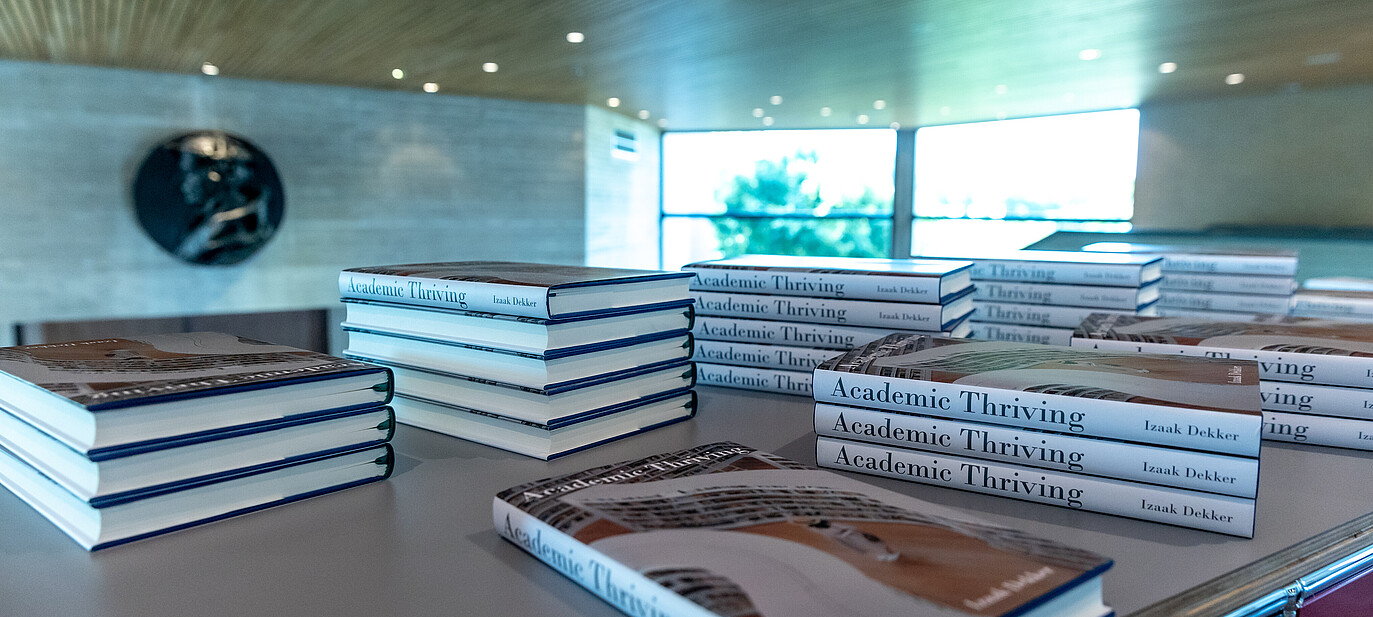
RSM Part-time PhD Programme
This PhD thesis has sprung from the Part-time PhD Programme at the Rotterdam School of Management, Erasmus University (RSM). Part-time PhD candidates conduct research against the highest academic standards on topics with real-world application value, thereby contributing to the positive impact of RSM research on business and other societal stakeholders. This programme allows candidates to develop their academic and research skills while they work. During the five-year programme, candidates are trained in research methods, use RSM’s research facilities and databases, participate in international conferences, and are supervised by research active faculty.
Below you can find dissertations of RSM Part-time PhD candidates:
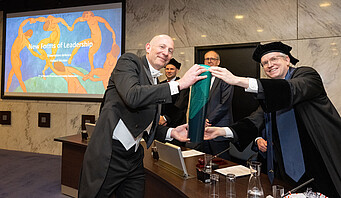
Mulder, F., New forms of leadership Leading in the plural and plural leadership , Supervisor: Prof. dr. S.R. Giessner, Co-supervisor: Prof. dr. B. Koene

Goldsby, C. M., _ Demystifying Digital Governance: Exploring the Mechanisms and Trade-offs of Blockchains for Organizations , _ Supervisor: Prof. dr. ir. J.C.M. van den Ende, Co-supervisor: Dr. H.J.D. Klapper
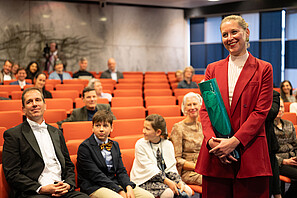
Isabel de Bruin Cardoso, E.W., _ The Dark Side of the NGO Halo: Exploring moral goodness as a driver for NGO unethical behavior _, Supervisors: Prof. dr. S.P. Kaptein & Prof. dr. L.C.P.M. Meijs

Ouacha, M., Receiving by Giving The examining of cross-border diasporic and bi-cultural Philanthropy , Supervisor: Prof.dr. L.C.P.M. Meijs, Co-supervisor: Dr. C.H. Biekart
Jakobs, K., ICT Standardisation Management: A multidimensional perspective on company participation in standardization committees , Supervisors: Prof.dr.ir. H.J. de Vries & Prof. K. Blind
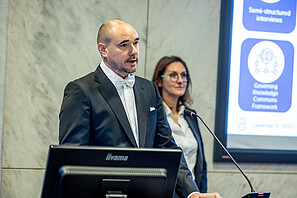
Carpentier, P.D.J. A New Frontier for the Study of the Commons Promotors: Prof.dr. L.C.P.M. Meijs, Prof.dr. V.J.A. van de Vrande
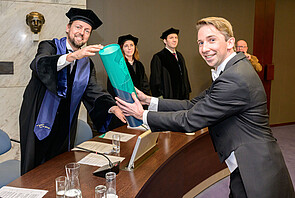
Reinders, H.J. Financial Stability in a Changing Environment Promotors: Prof.dr. D. Schoenmaker, Prof.dr. M.A. van Dijk
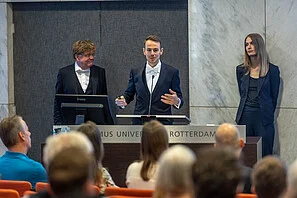
Dekker, I. Academic Thriving; Optimising Student Development with Evidence-Based Higher Education . Promotors: Prof. dr. M.C. Schippers, Dr. E. Klatter & Dr. E.J. Van Schooten https://pure.eur.nl/ws/portalfiles/portal/53684049/dissertatiemiddelenizaakdekker_6267af186ff73.pdf
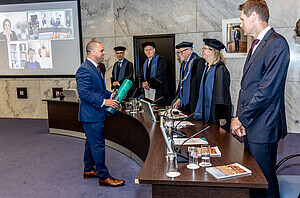
Heeren, J. Management Innovation in the Military, Practice Adaptation Processes and Innovation Performance Consequences Solving the Paradox Between Institutional Pressure, Rational Motivation and Implementation Misfit Promotors: Prof.dr. H.W. Volberda, Prof.dr.ir. V.J.A. van de Vrande & Dr. E.J. de Waard https://www.eur.nl/en/events/phd-defence-jwj-jasper-heeren-2022-04-22
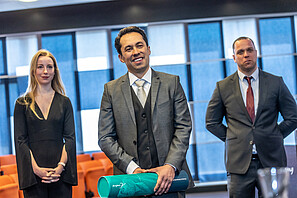
Caballero Santin, J.A. Stunted Innovation: How large incumbent companies fail in the era of supply chain digitalization. Promotors: Prof.dr.ir. J.C.M. van den Ende, Dr. M. Stevens https://pure.eur.nl/ws/portalfiles/portal/50170730/phd_dissertation_jaimereduced_620135877e60f.pdf
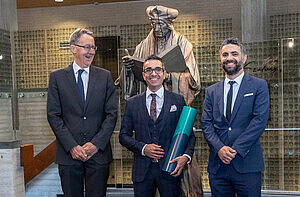
Renault, M. All for One and One for All: How Teams Adapt to Crises. Promotors: Prof.dr. J.C.M. van den Ende & Dr. M. Tarakci https://pure.eur.nl/ws/portalfiles/portal/50866956/max_thesisall_chapters_combined_and_preliminary_pagesfinal_embargo_621f67faca9ce.pdf
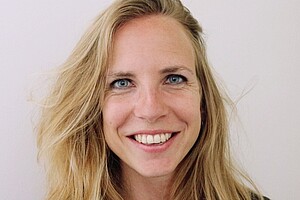
Duijm, P. On the Cyclical Nature of Finance: The role and impact of financial institutions , Promotor(s): Prof. D. Schoenmaker & Prof. W.B. Wagner, 1, https://repub.eur.nl/pub/120767
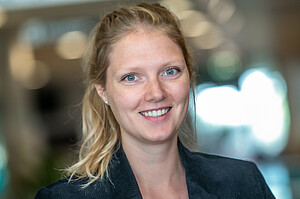
Maas, S.A. In the moment of giving: Essays on contemporary forms of private and corporate philanthropy. Promotors: Prof. L.C.P.M. Meijs & Prof. J.P. Cornelissen. https://repub.eur.nl/pub/124976
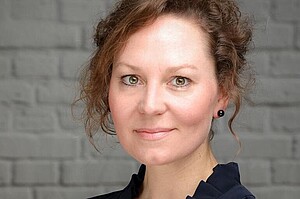
Langenbusch, C. A lot to lose. Organizational identity and emotions in institutional contexts. Promotors: Prof. J.P. Cornelissen, Prof. G. Jacobs. https://repub.eur.nl/pub/125099
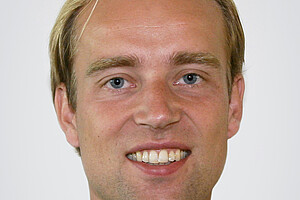
Van Zanten, J. A. Business in the Age of Sustainable Development https://repub.eur.nl/pub/135674
Profiles of Part-time Phd programme students
Patty duijm - cohort 2015.
Topic: On the cyclical nature of finance: The role and impact of financial institutions Supervisors: D. Schoenmaker (Dirk) , W.B. Wagner (Wolf) Author: Patty Duijm started her part-time PhD in 2015, at the Finance Department at RSM. Alongside her PhD she worked as an Economist at the Financial Stability Division and subsequently at the Supervisory Policy Division of De Nederlandsche Bank. She has been involved in regulatory and international policy topics covering recovery and resolution, stress testing financial institutions, and macroprudential policy. Her research interests include the impact of policy reforms on financial institutions, international banking, investment behavior and risk diversification. She completed her PhD in 2019. Patty currently works at the Data Science Hub of De Nederlandsche Bank, aiming at getting most value out of the data by incorporating data science at central bank and supervisory practices. An overview of her publications and current research can be found here.
Project description: Cyclical patterns are characterized by periods of strong economic expansions (‘booms’), followed by periods of detractions (‘busts’). In finance, we have seen these boom-bust cycles occur in, for example, the equity, credit and housing markets. During the global financial crisis of 2007-2009, we have seen that periods of economic downturns intensified financial market disruptions, and vice versa. The existence of these cycles that are closely linked to financial crises and that can intensify each other calls for a better understanding of their underlying mechanisms.

- Read Patty Duijm's dissertation
Stephanie Koolen-Maas - Cohort 2019
Topic: In the Moment of Giving. Essays on contemporary forms of private and corporate philanthropy Supervisors: L.C.P.M. Meijs (Lucas) , J.P. Cornelissen (Joep) Author: Stephanie Koolen-Maas started her PhD in 2015 at the Business-Society Management Department at RSM. She worked as an academic researcher and lecturer for the same department alongside her PhD. Stephanie’s research interests include the societal role of organizations, philanthropy, nonprofit and volunteer management, and business-nonprofit relationships. After completing her PhD in 2020, she started to work as a postdoctoral researcher at the Centre for Philanthropic Studies at the Vrije Universiteit Amsterdam. She also continued to work for the Business-Society Management Department at RSM as a postdoctoral researcher and lecturer. She is currently associated with Impact Centre Erasmus as a senior impact researcher. Her ultimate goal is to better understand and increase the societal impact of philanthropy and philanthropic, hybrid and commercial organizations.
Project description: No part of the philanthropic landscape appears to be as diverse as the ways in which individuals and for-profit organizations seek to do good. While philanthropy is not a new phenomenon, its diversification of practices and the emergence of (third party) organizations and new vehicles call for a renewed understanding. The studies in this dissertation represent a more in-depth exploration of contemporary forms of private and corporate philanthropy. First, I examine temporary episodic volunteering by examining National Days of Service. National Days of Service are state- or countrywide volunteering programs in which individuals and groups support nonprofit organizations by giving their time to a one-day, time-limited volunteer project. In the first two studies, I show how nonprofit organizations integrate National Days of Service and how they can do so more meaningfully. Second, I examine two vehicles that channel important elements of corporate philanthropy and that stand between corporate donors and nonprofit recipients. These include a corporate foundation serving the interests of multiple corporate donors simultaneously (collective corporate foundation) and third-party intermediary organizations. In the last two studies, I demonstrate how these two channels of corporate philanthropy add value and what the consequences are for corporate donors and nonprofit recipients.

- Read Stephanie Koolen-Maas' dissertation
Christina Langenbusch - Cohort 2015
Topic: A lot to lose Organizational identity and emotions in institutional contexts Supervisors: J.P. Cornelissen (Joep) , G. Belschak-Jacobs (Gabriele) Author: Christina Langenbusch is a senior organizational developer whose dissertation research focused on the qualitative analysis of organizational life at the intersection of global crisis management, organizational identity, sensemaking in the context of the grand challenge of forced displacement, emotions in institutions, and the process of theory development. Christina is currently researching quantitative evaluations of group behavior by translating organizational culture into a data-driven tool for leadership and change processes in the context of technology adoption. In addition to her work as an organizational developer and researcher, she continues to coach master's students. Christina has been awarded the 1st prize of the 2021 EDAMBA thesis competition. Project description: Organizational life entails complex, informal processes that can defi ne an organization just as much as its basic operational premises. To investigate these phenomena, this dissertation begins with a systematic literature review that critically investigates how the formation and strength of an organization’s identity is associated with value creation, providing a multi-level and multi-theory framework.

- Read Christina Langenbusch's dissertation
Anton van Zanten - Cohort 2016
Topic: Business in the Age of Sustainable Development Supervisors: Prof.dr. R. van Tulder , Dr. F. Wijen Author: Jan Anton van Zanten works at Robeco, an international asset manager specialized in sustainable investing, as Strategist for the Sustainable Development Goals. He was awarded his PhD with distinction (cum laude) in 2021. He had joined the part-time PhD programme in 2017 at RSM's Business-Society Management department. His research interests center around corporate sustainability, sustainable development, and sustainable investing. Prior to joining Robeco, Jan Anton was a Senior Consultant at Steward Redqueen, and a Consultant at the United Nations Environment Programme. Jan Anton holds a Master’s in Global Business & Stakeholder Management from Erasmus University Rotterdam and a Master’s in Development Studies from the University of Cambridge.
Project description: This dissertation contains five studies that investigate the role of companies in achieving the Sustainable Development Goals (SDGs). The first study builds on institutional theory to develop propositions that explain how corporate engagement with SDGs is influenced by traits of SDGs and by traits of companies. The second study conducts a systematic literature review to survey and synthesize the positive and negative impacts of diverse corporate activities on the SDGs and their underlying targets. In study three, corporate impacts on the SDGs are investigated using network analysis. This allows for identifying four types of companies, each having a unique sustainability imperative. The fourth study then asks how companies might improve their impacts on the SDGs, thereby contributing to developing a theory of sustainability management. This conceptual paper that is grounded in the sustainability sciences literature introduces a nexus approach to corporate sustainability. This nexus approach induces companies to manage their positive and negative, and direct and indirect, interactions with the SDGs in order to advance multiple SDGs simultaneously (“co-benefits”) while reducing the risk that contributions to one SDG undermine progress on another (“trade-offs”). Finally, the fifth study reflects on how the SDGs can help transform towards more sustainable societies throughout, and beyond, the COVID-19 pandemic.

- Read Anton van Zanten's dissertation
More information about the RSM part-time PhD programme
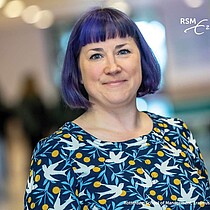
Academic Director of Part-Time PhD Programme
E-mail [email protected]
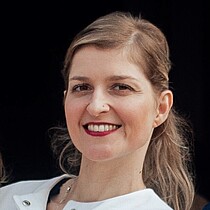
Filipa Covas
Programme Officer
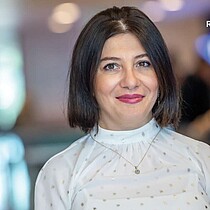
Vusala Guliyeva

Wardah Tahir Shah
Course Coordinator Part-Time PhD
RSM uses cookies to measure website statistics, enable social media sharing and for marketing purposes. By clicking accept cookies or by continuing to use this website, you are giving consent for us to set cookies when visiting this website. See our cookie policy for more information about cookies and how to adjust your cookie settings.

Study at Cambridge
About the university, research at cambridge.
- Undergraduate courses
- Events and open days
- Fees and finance
- Postgraduate courses
- How to apply
- Postgraduate events
- Fees and funding
- International students
- Continuing education
- Executive and professional education
- Courses in education
- How the University and Colleges work
- Term dates and calendars
- Visiting the University
- Annual reports
- Equality and diversity
- A global university
- Public engagement
- Give to Cambridge
- For Cambridge students
- For our researchers
- Business and enterprise
- Colleges & departments
- Email & phone search
- Museums & collections
- PhD in Computer Science
- Department of Computer Science and Technology
Sign in with Raven
- People overview
- Research staff
- PhD students
- Professional services staff
- Affiliated lecturers
- Overview of Professional Services Staff
- Seminars overview
- Weekly timetable
- Wednesday seminars
- Wednesday seminar recordings ➥
- Wheeler lectures
- Computer Laboratory 75th anniversary ➥
- women@CL 10th anniversary ➥
- Job vacancies ➥
- Library resources ➥
- How to get here
- William Gates Building layout
- Contact information
- Department calendar ➥
- Accelerate Programme for Scientific Discovery overview
- Data Trusts Initiative overview
- Pilot Funding FAQs
- Research Funding FAQs
- Cambridge Ring overview
- Ring Events
- Hall of Fame
- Hall of Fame Awards
- Hall of Fame - Nominations
- The Supporters' Club overview
- Industrial Collaboration
- Annual Recruitment Fair overview
- Graduate Opportunities
- Summer internships
- Technical Talks
- Supporter Events and Competitions
- How to join
- Collaborate with Us
- Cambridge Centre for Carbon Credits (4C)
- Equality and Diversity overview
- Athena SWAN
- E&D Committee
- Support and Development
- Targeted funding
- LGBTQ+@CL overview
- Links and resources
- Queer Library
- women@CL overview
- About Us overview
- Friends of women@CL overview
- Twentieth Anniversary of Women@CL
- Tech Events
- Students' experiences
- Contact overview
- Mailing lists
- Scholarships
- Initiatives
- Dignity Policy
- Outreach overview
- Women in Computer Science Programme
- Google DeepMind Research Ready programme overview
- Accommodation and Pay
- Application
- Eligibility
- Raspberry Pi Tutorials ➥
- Wiseman prize
- Research overview
- Application areas
- Research themes
- Algorithms and Complexity
- Computer Architecture overview
- Creating a new Computer Architecture Research Centre
- Graphics, Vision and Imaging Science
- Human-Centred Computing
- Machine Learning and Artificial Intelligence
- Mobile Systems, Robotics and Automation
- Natural Language Processing
- Programming Languages, Semantics and Verification
- Systems and Networking
- Research groups overview
- Energy and Environment Group overview
- Declaration
- Publications
- Past seminars
- Learning and Human Intelligence Group overview
- Technical Reports
- Admissions information
- Undergraduate admissions overview
- Open days and events
- Undergraduate course overview overview
- Making your application
- Admissions FAQs
- Super curricular activities
- MPhil in Advanced Computer Science overview
- Applications
- Course structure
- Funding competitions
- Prerequisites
- PhD in Computer Science overview
- Application forms
- Research Proposal
- Funding competitions and grants
- Part-time PhD Degree
- Premium Research Studentship
- Current students overview
- Part IB overview
- Part IB group projects overview
- Important dates
- Design briefs
- Moodle course ➥
- Learning objectives and assessment
- Technical considerations
- After the project
- Part II overview
- Part II projects overview
- Project suggestions
- Project Checker groups
- Project proposal
- Advice on running the project
- Progress report and presentation
- The dissertation
- Supervisor briefing notes
- Project Checker briefing notes
- Past overseer groups ➥
- Part II Supervision sign-up
- Part II Modules
- Part II Supervisions overview
- Continuing to Part III overview
- Continuing to Part III: 2023 guidance
- Part III of the Computer Science Tripos
- Overview overview
- Information for current Masters students overview
- Special topics
- Part III and ACS projects overview
- Submission of project reports
- ACS projects overview
- Guidance for ACS projects
- Part III projects overview
- Guidance for Part III projects
- Preparation
- Registration
- Induction - Masters students
- PhD resources overview
- Deadlines for PhD applications
- Protocol for Graduate Advisers for PhD students
- Guidelines for PhD supervisors
- Induction information overview
- Important Dates
- Who is here to help
- Exemption from University Composition Fees
- Being a research student
- Researcher Development
- Research skills programme
- First Year Report: the PhD Proposal
- Second Year Report: Dissertation Schedule
- Third Year Report: Progress Statement
- Fourth Year: writing up and completion overview
- PhD thesis formatting
- Writing up and word count
- Submitting your dissertation
- Papers and conferences
- Leave to work away, holidays, and intermission
- List of PhD students ➥
- PAT, recycling, and Building Services
- Freshers overview
- Cambridge University Freshers' Events
- Undergraduate teaching information and important dates
- Course material 2022/23 ➥
- Course material 2023/24 ➥
- Exams overview
- Examination dates
- Examination results ➥
- Examiners' reports ➥
- Part III Assessment
- MPhil Assessment
- Past exam papers ➥
- Examinations Guidance 2022-23
- Marking Scheme and Classing Convention
- Guidance on Plagiarism and Academic Misconduct
- Purchase of calculators
- Examinations Data Retention Policy
- Guidance on deadlines and extensions
- Mark Check procedure and Examination Review
- Lecture timetables overview
- Understanding the concise timetable
- Supervisions overview
- Part II supervisions overview ➥
- Part II supervision sign-up ➥
- Supervising in Computer Science
- Supervisor support
- Directors of Studies list
- Academic exchanges
- Advice for visiting students taking Part IB CST
- Summer internship: Optimisation of DNN Accelerators using Bayesian Optimisation
- UROP internships
- Resources for students overview
- Student SSH server
- Online services
- Managed Cluster Service (MCS)
- Microsoft Software for personal use
- Installing Linux
- Part III and MPhil Machines
- Transferable skills
- Course feedback and where to find help overview
- Providing lecture feedback
- Fast feedback hotline
- Staff-Student Consultative Forum
- Breaking the silence ➥
- Student Administration Offices
- Intranet overview
- New starters and visitors
- Forms and templates
- Building information
- Health and safety
- Teaching information
- Research admin
- Undergraduate admissions
- MPhil in Advanced Computer Science
The Department of Computer Science and Technology will offer a part-time route to the PhD Degree with effect from October 2022.
Part-time structure
The Department of Computer Science and Technology could offer a part-time route to the PhD. At present, the University allows a part-time route which is 60% of a fulltime PhD route for which the minimum number of terms for a part-time student is 15. The maximum number of terms for a part-time student is 21 terms.
The requirements for the probationary CPGS in Computer Science will be spread across two years with the first-year report due near the end of the fifth term (i.e. end of March for a Michaelmas admittee), and the registration viva occurring in the sixth term (Easter term). The Department expects the completion of the required 12 units from the Researcher Skills Programme across two years. Part-time students are also encouraged to spend one term full-time in the first year of the programme and that students will be in residence in Cambridge during that time.
After successful registration for the PhD Degree, part-time Ph.D. students are expected to have between 2 and 4 meetings with their supervisor per term for at least a further ten terms. They are expected to spend an average of three weeks each term in the Department with a minimum of 45 nights p.a. in residence.
Requirements for a part-time PhD applicants in Computer Science and Technology
- The proposed topic needs to be suitable for study over a minimum of five years (15 terms) and a maximum of seven years (21 terms).
- If a supervisor identifies a potential student and a topic as being possibly suitable for part-time study, an interview report form must be sent to the PhD Applications Panel for consideration.
- Potential supervisors should invite the Chair of the PhD Applications Panel or a deputy to attend the interview.
- As well as consideration by the PhD Applications Panel, the interview report will be considered by, and a decision approved by, the Degree Committee. The approved form will also be loaded to the applicant portal for consideration by the Postgraduate Admissions Office.
- The proposed supervisor must be able to supervise a part-time Ph.D. for at least the minimum 15 terms. This means that supervisors on short-term contracts, or those due to retire within seven years of a part-time student being admitted, will not be eligible to supervise. Those who are due to take sabbatical leave should consider alternative supervision arrangements.
- Applicants should be aware that there is no obligation on supervisors to accept applicants who wish to be admitted as part-time students.
- The student must live close enough to Cambridge, or be able to spend enough time in Cambridge during the first two years, to be able to participate, as much as possible, in research group seminars, reading groups and other activities.
- The student and supervisor will sign an agreement about how often the student will be in the department. This might be, for example: 2 x 8-hour days per working week per term, or 3 x 1-week per term, plus 40% of time in the research term (1 July to 30 September).
- Most CST Research Skills courses are available remotely. For research themes’ group meetings and seminars, physical presence in the department is preferred.
- The student will be required to provide a letter from the employer (if the student is employed) confirming that they may have time off to attend the University as required for the duration of the course. Applicants are required to upload a part-time attendance Declaration to their application once approved for admission.
Department of Computer Science and Technology University of Cambridge William Gates Building 15 JJ Thomson Avenue Cambridge CB3 0FD
Information provided by [email protected]
Privacy policy
Social media

© 2024 University of Cambridge
- Contact the University
- Accessibility
- Freedom of information
- Privacy policy and cookies
- Statement on Modern Slavery
- Terms and conditions
- University A-Z
- Undergraduate
- Postgraduate
- Research news
- About research at Cambridge
- Spotlight on...
Departments
- Applied Physics
- Biomedical Engineering
- Center for Urban Science and Progress
- Chemical and Biomolecular Engineering
- Civil and Urban Engineering
- Computer Science and Engineering
- Electrical and Computer Engineering
- Finance and Risk Engineering
- Mathematics
- Mechanical and Aerospace Engineering
- Technology, Culture and Society
- Technology Management and Innovation
Degrees & Programs
- Bachelor of Science
- Master of Science
- Doctor of Philosophy
- Digital Learning
- Certificate Programs
- NYU Tandon Bridge
- Undergraduate
- Records & Registration
- Digital Learning Services
- Teaching Innovation
- Explore NYU Tandon
- Year in Review
- Strategic Plan
- Diversity & Inclusion
News & Events
- Social Media
Looking for News or Events ?
Part-time Study
Designed exclusively for busy professionals, part-time study options at the NYU Tandon School of Engineering offer an outstanding education.
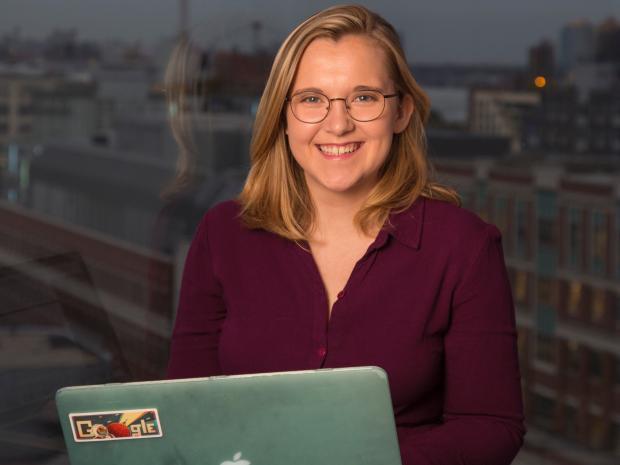
Related Links
You’ll learn from respected leaders in your field, including many responsible for game-changing inventions and innovations. Our preparation produces graduate students who are sought-after by the most dynamic companies in the world, from fast-paced startups to industry giants.
Benefits of a Part-time Education
Earning an advanced degree from NYU Tandon places you in an elite group of industry leaders and increases your demand in rapidly growing job markets. We offer flexible scheduling and a wide range of online courses that allows you to take classes in other departments or schools at NYU.
What’s Considered Part-time?
Part-time students may enroll in a maximum of six credits, which is typically two courses per semester. For master’s programs, part-time students may take up to five years to complete the degree. If you decide you would like to change your enrollment status to full time at some point, you can do so by obtaining department approval and submitting official GRE scores.
Part-time Studies That Meet All Your Needs
Our master’s and doctorate programs are constantly evolving to incorporate the latest practices, which provides you with a competitive edge professionally. Several of our master’s programs are offered in an "executive format," in which all required courses are taken on evenings and weekends. In addition, you are permitted to complete up to three courses before formally matriculating in a degree or certificate program.
Discover the full range of part-time options, important deadlines, and how to start your application .
Note: Students studying on a non-immigrant visa may not be eligible for part-time study.
Our cookies
We use cookies for three reasons: to give you the best experience on PGS, to make sure the PGS ads you see on other sites are relevant , and to measure website usage. Some of these cookies are necessary to help the site work properly and can’t be switched off. Cookies also support us to provide our services for free, and by click on “Accept” below, you are agreeing to our use of cookies .You can manage your preferences now or at any time.
Privacy overview
We use cookies, which are small text files placed on your computer, to allow the site to work for you, improve your user experience, to provide us with information about how our site is used, and to deliver personalised ads which help fund our work and deliver our service to you for free.
The information does not usually directly identify you, but it can give you a more personalised web experience.
You can accept all, or else manage cookies individually. However, blocking some types of cookies may affect your experience of the site and the services we are able to offer.
You can change your cookies preference at any time by visiting our Cookies Notice page. Please remember to clear your browsing data and cookies when you change your cookies preferences. This will remove all cookies previously placed on your browser.
For more detailed information about the cookies we use, or how to clear your browser cookies data see our Cookies Notice
Manage consent preferences
Strictly necessary cookies
These cookies are necessary for the website to function and cannot be switched off in our systems.
They are essential for you to browse the website and use its features.
You can set your browser to block or alert you about these cookies, but some parts of the site will not then work. We can’t identify you from these cookies.
Functional cookies
These help us personalise our sites for you by remembering your preferences and settings. They may be set by us or by third party providers, whose services we have added to our pages. If you do not allow these cookies, then these services may not function properly.
Performance cookies
These cookies allow us to count visits and see where our traffic comes from, so we can measure and improve the performance of our site. They help us to know which pages are popular and see how visitors move around the site. The cookies cannot directly identify any individual users.
If you do not allow these cookies we will not know when you have visited our site and will not be able to improve its performance for you.
Marketing cookies
These cookies may be set through our site by social media services or our advertising partners. Social media cookies enable you to share our content with your friends and networks. They can track your browser across other sites and build up a profile of your interests. If you do not allow these cookies you may not be able to see or use the content sharing tools.
Advertising cookies may be used to build a profile of your interests and show you relevant adverts on other sites. They do not store directly personal information, but work by uniquely identifying your browser and internet device. If you do not allow these cookies, you will still see ads, but they won’t be tailored to your interests.
Course type
Qualification, university name.
- Part time PhD
3295 degrees at 136 universities in the UK.
Customise your search
Select the start date, qualification, and how you want to study

Related subjects:
- PhD Agriculture, Animal Care, and Veterinary Science
- PhD Archaeology
- PhD Architecture
- PhD Biology and Life Sciences
- PhD Building, Planning and Construction Management
- PhD Chemistry
- PhD Communications and Media
- PhD Computer Science and Information Technology
- PhD Creative Arts and Design and Illustration
- PhD Economics
- PhD Education
- PhD Electronic and Electrical Engineering
- PhD Engineering
- PhD English Literature
- PhD Environmental Health and Safety, Protection and Conservation
- PhD Financial Management and Accounting
- PhD Food Science and Technology, Nutrition and Dietetics
- PhD Gallery, Conservation and Museum Studies and Museology
- PhD Geography and Earth Sciences
- PhD Health Care Management and Health Studies
- PhD History
- PhD Humanities and Social Sciences
- PhD Industry, Logistics, Manufacturing and Production
- PhD Journalism and Publishing
- PhD Languages
- PhD Law and Legal studies
- PhD Leisure, Hospitality Management and Event Management
- PhD Linguistic Studies
- PhD Literature
- PhD Management, Business and HR
- PhD Marketing and PR
- PhD Mathematics
- PhD Music Technology and Production and Sound Engineering
- PhD Nursing and Midwifery
- PhD Other Sciences and Research
- PhD Performing and Dramatic Arts, Acting and Music Studies
- PhD Philosophy
- PhD Physics
- PhD Physiotherapy and other Therapies
- PhD Psychology
- PhD Religious Studies and Theology
- PhD Social Work, Community Work and Counselling Skills
- PhD Sports and Recreation
- PhD Surgery, Medicine and Dentistry
- PhD Teaching and Training
- PhD Tourism and Travel
- PhD Transport Services and Aviation

- Course title (A-Z)
- Course title (Z-A)
- Price: high - low
- Price: low - high
Ageing and Dementia Studies Mphil
Bangor university.
- 2 years Full time degree: £4,712 per year (UK)
- 4 years Part time degree: £2,356 per year (UK)
MPhil PhD School of Arts and Creative Industries
University of east london.
- 3 years Full time degree: £5,740 per year (UK)
- 5 years Part time degree: £2,870 per year (UK)
PhD Public Health & Health Policy
University of strathclyde.
- 36 months Full time degree: £4,712 per year (UK)
- 60 months Part time degree
University of Roehampton
- 4 years Full time degree: £4,711 per year (UK)
- 7 years Part time degree: £2,356 per year (UK)
PhD Stage and Screen
Sheffield hallam university.
- 4 years Full time degree: £4,712 per year (UK)
PhD Creative Arts and Cultural Industries
Soas university of london.
- 3 years Full time degree: £4,860 per year (UK)
- 6 years Part time degree: £2,430 per year (UK)
Social Sciences PhD
Oxford brookes university.
- 3 years Full time degree: £4,712 per year (UK)
PhD in Film Media and Screen Studies
Manchester metropolitan university.
- 3 years Full time degree: £4,850 per year (UK)
- 6 years Part time degree
PhD Postgraduate Research in Mathematics
University of east anglia uea.
- 6 years Part time degree: £2,356 per year (UK)
Architecture, Construction and Environment PhD
University of gloucestershire.
- 4 years Full time degree: £5,100 per year (UK)
- 6 years Part time degree: £3,400 per year (UK)
PhD - Bournemouth University Business School
Bournemouth university, public health and policy phd, london school of hygiene & tropical medicine, university of london.
- 4 years Full time degree: £6,740 per year (UK)
- 8 years Part time degree: £3,370 per year (UK)
PhD/MPhil Sociology
City, university of london.
- 2 years Full time degree: £5,110 per year (UK)
- 3 years Part time degree: £2,560 per year (UK)
PhD (Faculty of Health Studies) Doctorate
University of bradford.
- 6 years Part time degree: £2,342 per year (UK)
PhD Librarianship
Aberystwyth university.
- 5 years Part time degree: £2,356 per year (UK)
PhD Postgraduate research opportunities in Psychology
Liverpool john moores university, business mphil/phd, university of worcester.
- 3 years Full time degree: £4,950 per year (UK)
- 5 years Part time degree: £2,475 per year (UK)
- RSDP4004: Planning Your Research Project
- View all modules
Sustainable Energy PhD
University of surrey.
- 8 years Part time degree: £2,356 per year (UK)
Education PhD
University of brighton, phd research degrees, arts university bournemouth.
- 3 years Full time degree: £6,000 per year (UK)
- 5 years Part time degree: £3,000 per year (UK)
1-20 of 3295 courses
Course type:
Qualification:, universities:.
- University of Warwick
- Durham University
- University of West London
- University of Greenwich
- Royal Northern College of Music
- Brighton and Sussex Medical School
- Institute of Advanced Legal Studies, School of Advanced Study, University of London
- Rose Bruford College
- University of Hull
- Bishop Grosseteste University
- Hull York Medical School
- AECC University College
- University of Wales Trinity Saint David
- University of Portsmouth
- University of Huddersfield
- University of Nottingham
- Cardiff University
- University of Suffolk
- Canterbury Christ Church University
- Warburg Institute, School of Advanced Study, University of London
Related Subjects:

The best PhD student part-time jobs [Full guide]
Having a part-time job as a PhD student can be a way to earn more money and live more comfortably but, it also has a downside. It can also be a huge distraction and stop you from focusing on your primary goal which should be working towards your PhD.
The good news is that there are job options that allow you to build valuable skills for the future and not get distracted. My favourite jobs, during my PhD, were teaching in laboratories and tutoring.
The best PhD student part-time jobs include university-based jobs such as tutoring, marking exams, running workshops or laboratories, and working in student services. You can also do online part-time jobs such as user testing to earn a small amount of extra income per month.
Having a part-time job as a PhD student is essential if you are a self-funded PhD student. Without the extra income, you will be relying on savings and eating away the money in your bank account.
This article will cover everything you need to know about the best PhD student part-time jobs and provide you with some options that may suit your current availability and interests.
Can I have a side job as a PhD student?
In all the universities that I have worked at, there has never been any issue with PhD students having a part-time job as long as it did not interfere with their research and it was approved by their supervisor.
PhD students are able to get a stipend which will support their basic living costs throughout their PhD. For example, I was supplied with AU$20,000 per year as a PhD stipend in Australia .
This amount provided me with enough money to afford a reasonable rent in a share house and run a very old and tired car. Nonetheless, I often had plenty of money for entertaining myself with my friends. There wasn’t a lot of money saved but it meant that I didn’t have too worried about the basics (food, accommodation, travel, et cetera).
Some PhD students find that their stipend is not enough for their desired lifestyle and, therefore decide to get a part-time job.
But should you get a part-time job during your PhD?
Should you have a job during a PhD?
Even though there are no explicit rules in many universities for students having part-time jobs it can be a huge distraction.
A PhD takes up a lot of brainpower and time. Trying to balance the demands of a part-time job may be too much for many PhD students.
In general, I would recommend that a PhD student does not have a part-time job in at least the first year of their studies.
Ensuring that your mind is fully on the research will help you start strong – the work performed in the early years are the most important for a timely finish.
You should definitely get a part-time job during your PhD if you are under financial stress. Worrying about where the next meal will come from will do nothing but distract you from the research. Going down to a part-time PhD is also an option if you are struggling financially.
Do what is best for you and the general rule of thumb is to dedicate as much time as possible to your PhD whilst also balancing other aspects of in adult life such as obtaining money for a basic lifestyle.
If you do decide to get a job during your PhD here are some of the best options for balancing with your research.
Best PhD student part time jobs
The best PhD student part-time jobs will have flexible hours, provide you with a reasonable hourly rate, and not distract you from your primary goal of completing your PhD.
I have highlighted in my YouTube video, below, all of the different side hustles that PhD students can try if they need to earn a little bit more money.
There are, of course, many more options than I was able to highlight in my YouTube video.
Typical common part-time jobs in hospitality and customer service are a great place to start if you need to start work quickly.
Common part-time jobs
Even though it can sometimes feel like a bit of a backward step in your life, getting a job in hospitality or customer service can be the perfect balance for your PhD schedule.
Think of areas of employment that employ undergraduate students. These employers are often understanding of student timetables and are often more flexible with your rostering.
Hospitality
Working in a bar, restaurant, café, or other hospitality area can be a fantastic way to earn money as a PhD student in a part-time job.
The benefits include working outside of 9-to-5 and being relatively flexible with working hours.
Unfortunately, hospitality can be very physically demanding. Standing up all day, serving customers, and delivering food can take its toll. Ensure that you are able to balance this role and rest appropriately to allow your mind to be on tiptop form when you are doing research.
Customer service
Customer service is another awesome job that often employs university students.
Working in a store on weekends may be the best way to balance your PhD and your work.
In high school, I worked in a department store and I was also able to earn commission on top of my regular base salary. I sold suits.
Looking for customer service/sales roles that have an extra commission on top of the base salary may be a good way to maximise your earning potential in a part-time job.
University-based jobs
One of my favourite areas to work as a PhD student was within the university itself.
Having a part-time job in a university means that you don’t have to travel very far. It is also very easy to fit in around your other research responsibilities.
There are a number of university-based jobs including tutoring, marking exams, working in student services, and more.

One of my favourite ways of making money as a PhD student was fired tutoring.
If you enjoy working with students tutoring may be one of the most lucrative things for you to do with your time.
I used to offer students “cram sessions”.
Towards the end of a teaching semester I would offer chemistry students the ability to go through past exams with me. I would break down all of the common questions in the past exams and the best way to answer them.
This was valuable for the student as it focused their attention towards passing an exam. I was able to earn a lot of money in two weeks because of the demand for extra tutoring.
Simply placing in advertisement on a high traffic student area is all the marketing you need to do. Alternatively, you can place ads online in the appropriate forums and Facebook groups et cetera.
Marking Exams
Marking exams is something that senior PhD students can consider.
I used to mark lecturers’ exams because they did not have the time to do it themselves.
I approached several lecturers and asked whether or not they would be interested in outsourcing their marking. I was provided with an ideal answer marking sheet to mark up to 300 papers.
Once I got into the swing of things and memorise the answers it was very easy to go through the exams and pick out the areas in which the marks are awarded.
Workshops/laboratories
In the chemistry area, undergraduate students have two do laboratory assignments.
It was very common for PhD students to sign up for demonstrating in the labs.
The job would involve attending a lab, demonstrating the activities, supervising the students and answering questions, and marking their lab books.
Even though the role was performed throughout the day it only happened a couple times a week and was easy to fit into a typical PhD workload.
I also ran the chemistry tutorials.
These were where students asked questions about the lecture material and we went over many examples so that they were able to fully understand the, sometimes very complicated, material.
If something like this interests you, reach out to
Student services
Other PhD students in my cohort often signed up for contract roles with the student services office.
They would help undergraduate students with activities like:
- literature review writing
- article writing
- finding and citing sources
- and other academic activities
Often these services were for international students struggling with academic English.
Have a look to see if your university offers the services and how you can get involved.
Best online jobs for PhD students
In the modern world, it is possible to earn money online. It isn’t necessarily the easiest way of earning money and it can be very difficult and time-consuming to earn money online.
Nonetheless, there are some options for you if you need to be location independent and have a desire to earn your money online.
The great thing is that you only need a laptop and a stable Wi-Fi or Internet connection to earn money.
Here are some of my best ways of earning money.
User testing
User testing is when you provide feedback to developers and website owners on the usability of their website or app.
I did this for a while and it earned me anywhere between US$200 and US$300 a month. Not a lot but enough for a little bit of a top up of your scholarship.
The onboarding process was relatively simple and you have to submit an example of your work. Speaking aloud clearly, and following the brief allows you to get the highest reviews back from your clients and ensures that you are recommended for more tests.
Check out a service like usertesting.com .
If you can read and write in a foreign language fluently and understand the basics of translation you can make a good money as a freelance translator.
This is brilliant for international students who are doing their PhD in a second language and it can make you up to $29 per hour . Your pay will vary based on your experience and the complexity of the project you work on.
An interesting way of making money as a PhD student is to become a notetaker for a service like studysoup.com
You will be able to earn a lot of money whilst helping struggling college students with their notetaking in difficult classes.
If you are someone who loves organisation and learning this may be the perfect opportunity for you to earn some money alongside your PhD.
It could be a little bit time-consuming but will also help you revisit the basics and foundations of your field. Something that is quite valuable for PhD students who are getting lost in the specifics of their research.
Search engine evaluator
Search engine performance evaluation can be relatively lucrative for PhD students but it can be lonely and demand a lot of your time.
You will be evaluating whether a search result is timely, relevant, and accurate to their search intent.
You’ll be providing a human perspective on the results to help inform their algorithms.
It has excellent flexible working hours and often employs new evaluators.
However, the workflow can be very irregular, just like most online ways of earning money, and may involve training periods and non-compete agreements.
If you’re interested in other ways to earn money check out this YouTube video, below.
Best freelance jobs for PhD students
Getting a freelance job can be relatively difficult. Unfortunately, building up your reputation as a reliable and capable freelancer is a full-time job on its own.
However, if you have got a particular skill that is highly valued you can earn good money.
Freelance jobs for PhD students include:
- translation
- video editing
- graphic design
- search engine optimisation
- website development
- and many other skills
You can use services like Upwork to find clients but these services are often a “race to the bottom” for pricing. You may not get what you deserve and you may be better off finding clients through your own networks and connections initially.
Choosing the best PhD student part-time jobs
If you decide to take up a part-time job as a PhD student is important that you follow some simple rules to ensure that it does not take over your life.
Balancing the time commitments required for a PhD student with a part-time job is difficult but certainly not impossible.
Good communication with your employer, supervisor, and direct manager will ensure that you are able to balance everyone’s expectations.
Here is everything you need to do to make sure that you choose the best PhD student part-time job.
Time commitment
Part-time jobs can become a massive time sink.
Ensure that you write out your schedule and dedicate as much time as humanly possible to your PhD studies.
Look for a job that has the smallest amount of time commitment for the largest amount of hourly pay so that you can be as efficient as possible earning money.
Skill building
The one reason I loved getting a part-time job in my university was that it allowed me to build up skills that helped me later in academia.
Learning to teach, explain, and help students certainly look good on my CV and it was something I enjoyed. It led to me lecturing as a postdoc and allowed me to build up evidence of quality teaching.
Try to find a part-time PhD student job that allows you to build skills that you enjoy. For me, that was teaching, lecturing, and interacting with students.
No matter what you decide to do, make sure that everyone is on the same page.
You need to be explicit with each person involved. Whether that is your research supervisor, your boss, manager, or family, you need to make sure that everyone knows what you are able to do and the time that you can dedicate to each activity.
People can get confused about your motivations and asked too much of you as a PhD student.
Remember to write down your agreements and have everyone sign off on what you are committing to. Jobs can easily take over a lot of your life if you allow them to.
Wrapping up
This article has been through everything you need to know about the best PhD student part-time jobs and all of the options available to you.
I have shared my experience during my PhD and found that a university-based part-time job was the best way to balance the time commitments of both a job and my research.
I also really liked lecturing and, therefore, built up skills which enabled me to bolster my CV and position myself later in my academic career.
No matter what you end up doing, make sure that everyone understands the commitments you are able to provide to each role and that you are explicit with your supervisor and your boss.
Earning a little bit of extra money throughout your PhD will help you stay away from financial anxiety and provide a little bit of extra spending money on top of your PhD stipend.

Dr Andrew Stapleton has a Masters and PhD in Chemistry from the UK and Australia. He has many years of research experience and has worked as a Postdoctoral Fellow and Associate at a number of Universities. Although having secured funding for his own research, he left academia to help others with his YouTube channel all about the inner workings of academia and how to make it work for you.
Thank you for visiting Academia Insider.
We are here to help you navigate Academia as painlessly as possible. We are supported by our readers and by visiting you are helping us earn a small amount through ads and affiliate revenue - Thank you!

2024 © Academia Insider

Quick Access
- Research Postgraduate Studies
- Research at PolyU
- Study at PolyU
- HK PhD Fellowship Scheme
- The Hong Kong PhD Fellowship Scheme under the Research Grants Council
- PolyU A to Z
- Alumni Affairs Office
- Academic Registry
- Finance Office
- Information Technology Services
- Pao Yue-Kong Library
- Research and Innovation Office
- Student Affairs Office
- University Health Services

Prospective Students
- How to Apply for Research Studies
- Admission Requirements
- Find a Supervisor
- Fellowship & Scholarship Schemes
- The Hong Kong PhD Fellowship Scheme
- PolyU Sports Scholarship Scheme for RPg Students
- Dual PhD Degree Programmes
- Collaborative PhD Training Programmes
- Research Student Attachment Programme – Incoming
- Research Postgraduate Studies Booklet
- Words from Graduates
- Current Students
- List of Research Postgraduate Subjects
- Awards Grants and Scholarships
- PolyU PhD Scholars International Collaborative Research Fellowship (ICRF)
- Resources for Skills Enhancement
- Notices to Students
- Useful Information for New Research Postgraduate Students
- Academic Integrity
- Online Systems
- Equal Semester/Term
- Academic Calendar
- Graduation Requirements
- Research Postgraduate Student Handbook
- Forms for Students
- Tuition Fees and Other Fees
- Research Student Attachment Programme – Outgoing
Undergraduate Research
- Message from PolyU President
- Funding Schemes for CURI Students
- Application for Two-Year URIS 2024/25
- Potential Supervisor List
- Approved Project Lists 2021 - 2023
- Best URIS Research Project Award 2023
- URIS Handbook and Forms
- About CURI RC
- UG Summer Research Abroad Sponsorship (USRA)
- Congregation Matters
- Award and Parchment
- Electronic Certifications – Award Parchments and Transcript of Studies
- Forms for Graduates
- Online System for Congregation Matters
- Guidelines and Regulations for Research Postgraduate Studies
- RPg Admission Information
- HKPFS 2024-25
- Promotion Resources for HKPFS
- Sharing Session on HKPFS Promotion & Recruitment
- UPSF System
- Joint PhD Supervision Scheme with Chinese Mainland Universities
- PolyU-A*STAR Joint PhD Supervision Programme
- Guidelines on Research Student Attachment Programme (RSAP)
- Faculty Research Committee / School Board
- Departmental / School Research Committee
- Checklists for RPg Student-Related Processes
News and Events
- GS Newsletter
- International Research Summer School 2024
- Outstanding Research Postgraduate Alumni Award 2024
- PolyU PhD Info Week 2023
- PolyU Research Student Conference (PRSC) 2023
- PhD Thesis Award 2023
- Best Research Postgraduate Student of the Year 2023
- Enrichment Activities
- Distinguished Speaker Series
- Message from Dean
- Vision and Mission
- Advisory Committee
- GS Ambassador Programme
- Contacts by Functions
Key Dates for an 8-year Part-Time PhD Student
Annual Progress Report :
All RPg students will be assessed by their academic host departments/schools annually. Each RPg student is required to submit a progress report and will be allowed to proceed on with his/her studies subject to satisfactory performance as judged by D/SRC.
The reporting requirements will be announced at the appropriate time in each academic year.
HKPFS students are required to submit a Progress Report on an annual basis to the RGC via GS and D/SRC Chair during the Fellowship period.
# This schedule of taking Research Language Skills Assessment (RLSA) is applicable to RPg students of the 2021/22 Cohort and after.
We use Cookies to give you a better experience on our website. By continuing to browse the site without changing your privacy settings, you are consenting to our use of Cookies. For more information, please see our Privacy Policy Statement .
Your browser is not the latest version. If you continue to browse our website, Some pages may not function properly. You are recommended to upgrade to a newer version or switch to a different browser. A list of the web browsers that we support can be found here
What are you looking for?

Popular Search
- Research studies

IMAGES
VIDEO
COMMENTS
Part-Time PhD and Doctoral Programs: Best in 2023. Quality, affordability, and accreditation are important when searching for the best part-time PhD and doctoral programs. The best choice for you, though, often boils down to how well a program fits with your full-time work schedule and everyday life.
To be included, a college or university must be regionally accredited and offer degree programs online or in a hybrid format. 1. Andrews University. Andrews University is a private university in Berrien Springs, Michigan, that is affiliated with the Seventh-day Adventist Church.
Part-Time PhD in Civil and Environmental Engineering at Tufts University. Program Length: ~5 years; ... Create a realistic schedule that allocates dedicated time for academic tasks, work responsibilities, and personal activities. Prioritize tasks based on deadlines and importance, and use time management techniques such as setting goals and ...
By Jamie Foster November 5, 2023. Earning a PhD is the pinnacle of academic achievement in computer science, opening doors to research, teaching, and leadership roles. But taking 4+ years off work for a full-time program isn't feasible for everyone. Part-time PhD options allow professionals to attain this goal while continuing their careers.
Master Academia. 11 minutes read. Doing a PhD part-time can be an attractive option for many reasons. However, part-time PhDs are less common than full-time ones, and there tends to be a lack of information on this option. This guide to part-time PhDs answers the most common questions that prospective part-time PhD candidates have. Contents.
Part Time PhD Fees. The average tuition fee for part time PhD study in the UK is approximately £2,356 per academic year for home students, and between £8,000 to £12,500 for international students. This is typically 50% of the fee charged for an equivalent full time doctorate. However, a handful of universities use a prorated fee of up to 60% ...
Tufts School of Engineering's part-time PhD Program helps working professionals achieve their education and career goals. Conduct cutting-edge research and develop new technologies with our world-class faculty, all while maintaining your employment in industry. Our part-time PhD program is tailored for industry professionals who receive full ...
We have a program designed to help you reach them. Johns Hopkins top-ranked Engineering for Professionals program delivers challenging part-time, online courses in more than 22 disciplines that address the most current engineering technologies, practices, and issues. Study online, on your time and gain solutions-based knowledge—immediate ...
Georgia State University's PhD in Computer Science blends academic coursework, rigorous research, and dissertation studies. The program gives students a well-rounded educational opportunity, helping them advance in the information technology field. Graduates from this program can be teachers, researchers, or leaders in the business world.
Syracuse University offers professionals access to a part-time online Ph.D. program for working professionals. This program focuses on developing the skills of working professionals who would like to advance in the executive world. Promoting positive change through executive leadership is the goal of the doctoral program.
For more PhD related tips: https://jameshaytonphd.com/blogAnd for more detailed guidance, courses, weekly zoom calls and community support, check out the PhD...
If you're studying a part-time PhD, your workload will be halved, at around 17 and a half hours per week. Depending on your schedule, this might be across a full week or a few days. Universities rarely impose a number or pattern of work hours on PhD students, so it'll be up to you to manage your time effectively.
Part-Time Study. On this page: A degree candidate who wishes to enroll as a part-time student must complete an application for part-time study and submit it to the Office of Academic Programs for approval. See the academic calendar for deadlines. Before applying for part-time study, students should discuss their plans with their advisor and ...
The difference is the time given to both. As the name suggests, a part-time PhD is a PhD that is studied only part-time, while a full-time PhD is studied in the usual manner. A part-time PhD typically takes anywhere between five and seven years. Full-time PhDs are, by no means, short affairs, but typically tend to take around three or four years.
Key Benefits of Part-Time PhD Study. Maintain an income while studying. Maintain your employment rights, such as a pension. Improve your future employability whilst working. Ability to balance family commitments with studying. Keep "in touch" with the working environment. Opportunity to engage in research in relation to working life.
The RSM part-time PhD program is a great opportunity to combine my executive activity with top notch research abilities, the program is designed to suit the agenda of active executives. ... RSM's program is also designed to provide enough flexibility to accommodate the part-time schedule of professionals. Taken together, this makes for a ...
The Department of Computer Science and Technology could offer a part-time route to the PhD. At present, the University allows a part-time route which is 60% of a fulltime PhD route for which the minimum number of terms for a part-time student is 15. The maximum number of terms for a part-time student is 21 terms.
Part-time students may enroll in a maximum of six credits, which is typically two courses per semester. For master's programs, part-time students may take up to five years to complete the degree. If you decide you would like to change your enrollment status to full time at some point, you can do so by obtaining department approval and ...
The PhD proposal will be assessed on behalf of the Graduate School Admissions Committee. The proposal will be judged on scientific quality, research approach, and project feasibility in approach and time schedule. If the proposal is not approved, the aspirant PhD student receives one opportunity to revise and resubmit the proposal.
A part-time PhD in the UK is an academic programme that covers the same learning material as a full-time PhD, but requires that you spend less time every week engaging in research. The main difference between these two variants is that a part-time PhD takes more time to complete. For example, while a standard PhD takes between three and four ...
London School of Hygiene & Tropical Medicine, University of London. (4) 4 years Full time degree: £6,740 per year (UK) 8 years Part time degree: £3,370 per year (UK) Apply now Visit website Request info. Compare.
The best PhD student part-time jobs include university-based jobs such as tutoring, marking exams, running workshops or laboratories, and working in student services. You can also do online part-time jobs such as user testing to earn a small amount of extra income per month. Having a part-time job as a PhD student is essential if you are a self ...
1 Sep or 1st day of Sem 1, whichever is earlier. 1 Jan. 1 May. Report Study at General Office of the host department/school. 1st working day upon study commencement. Research Language Skills Assessment (RLSA) #. Within one month after programme registration. 4th. Confirmation of Registration.